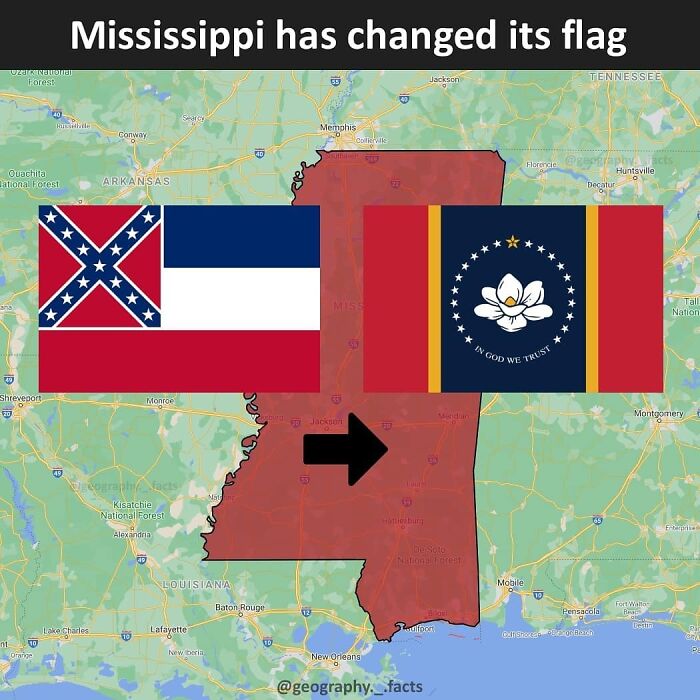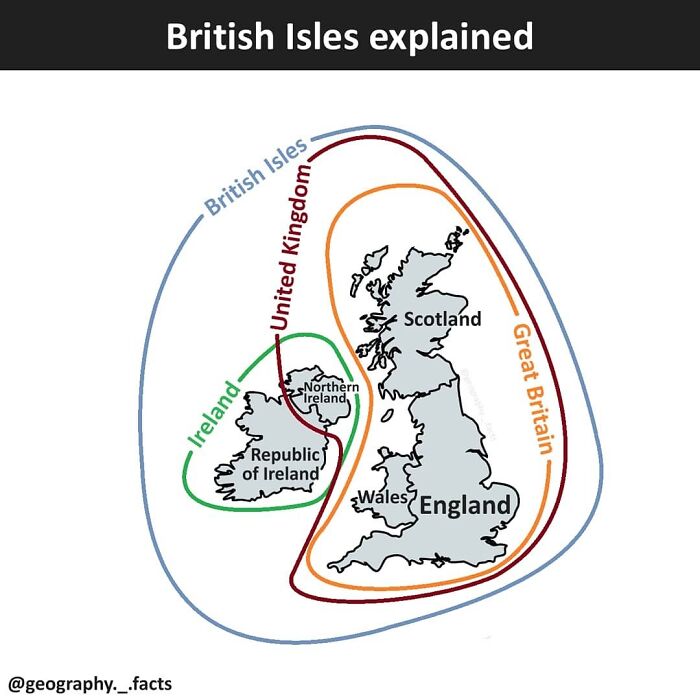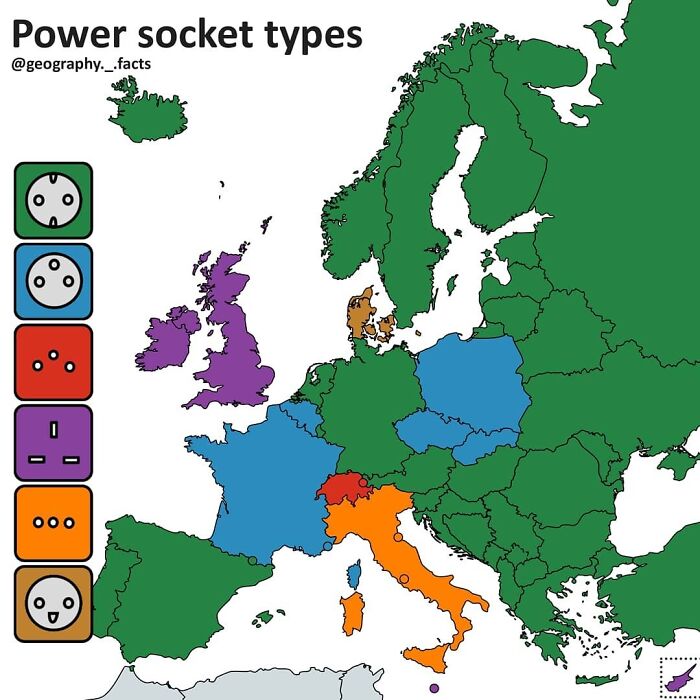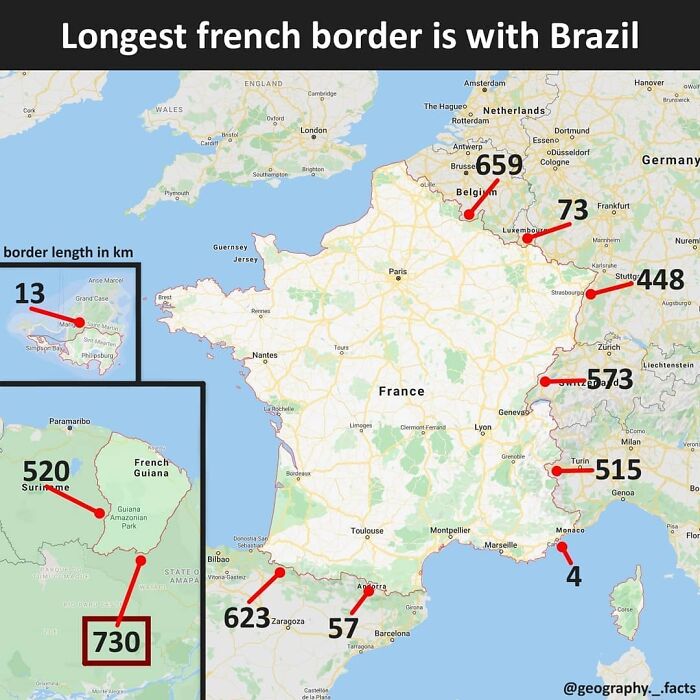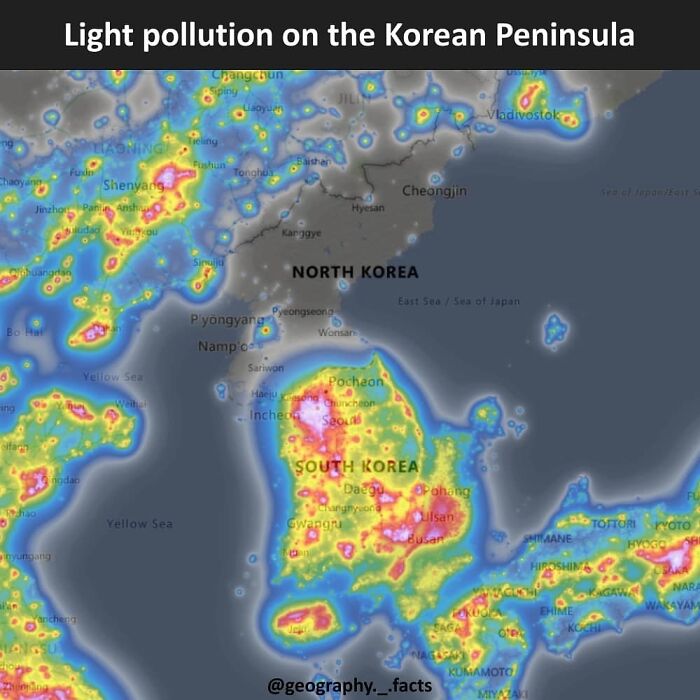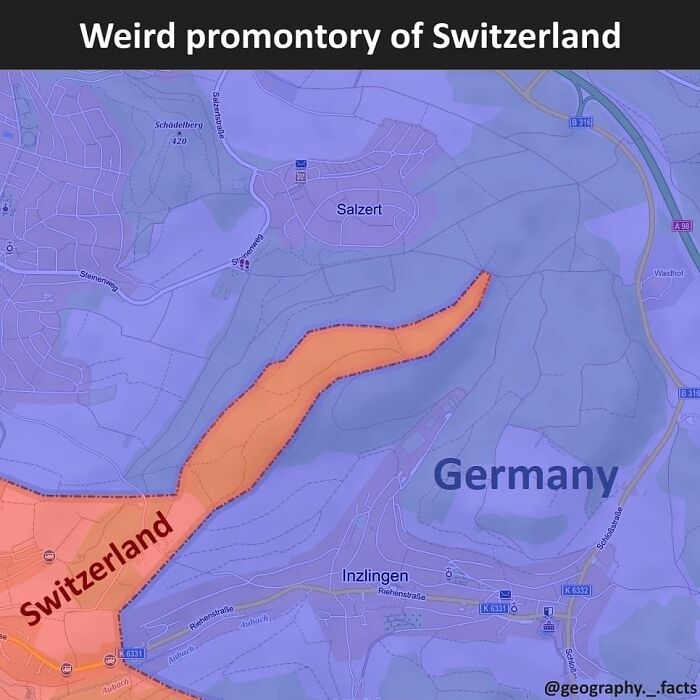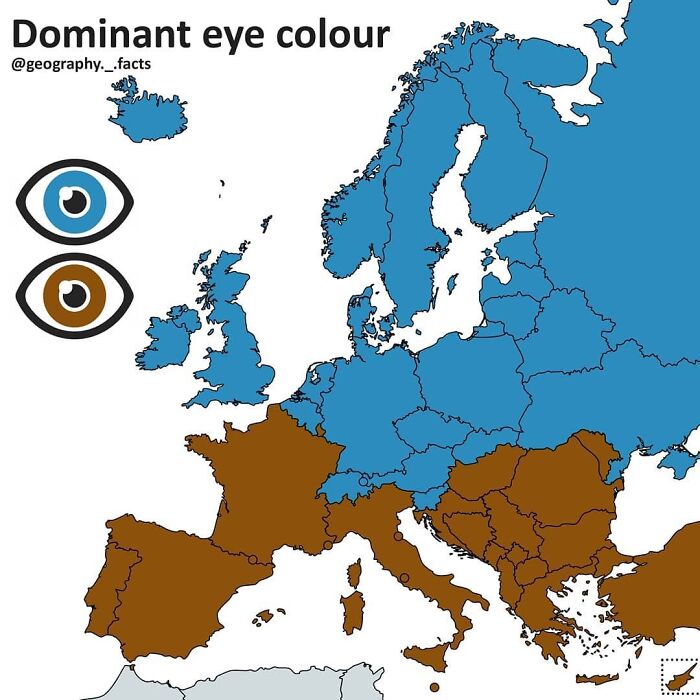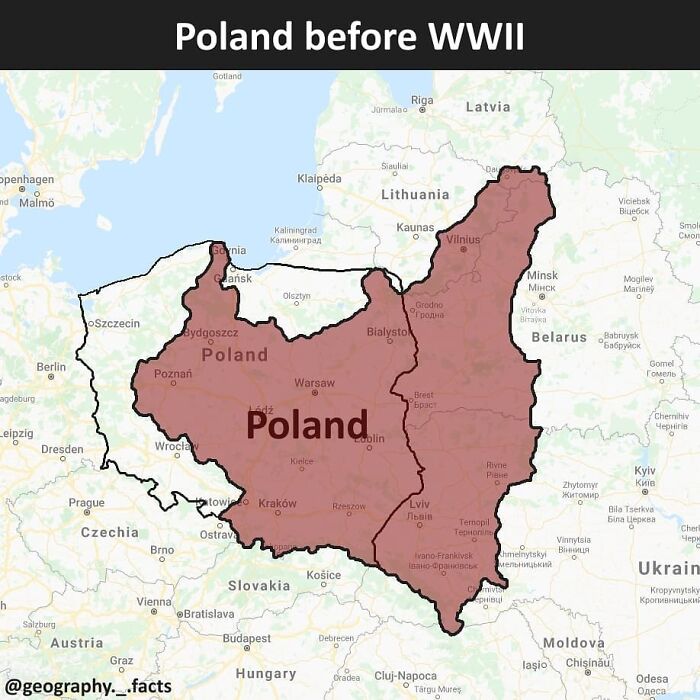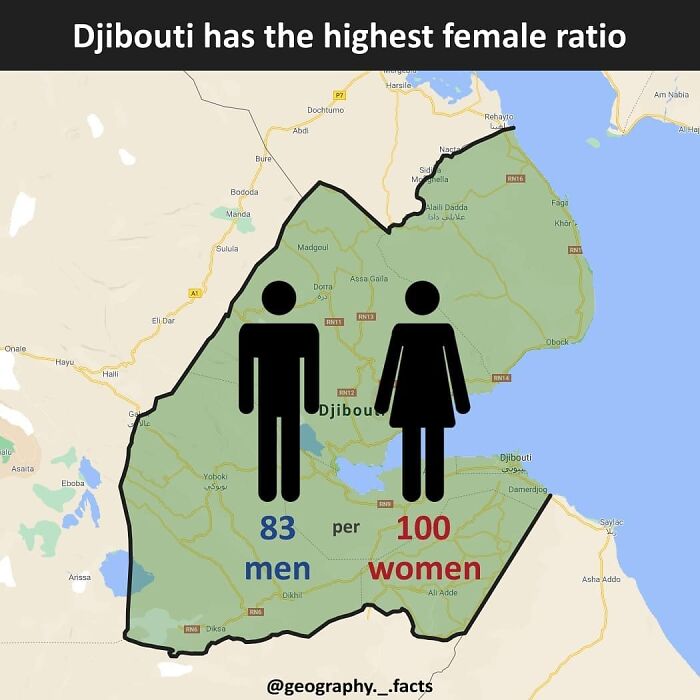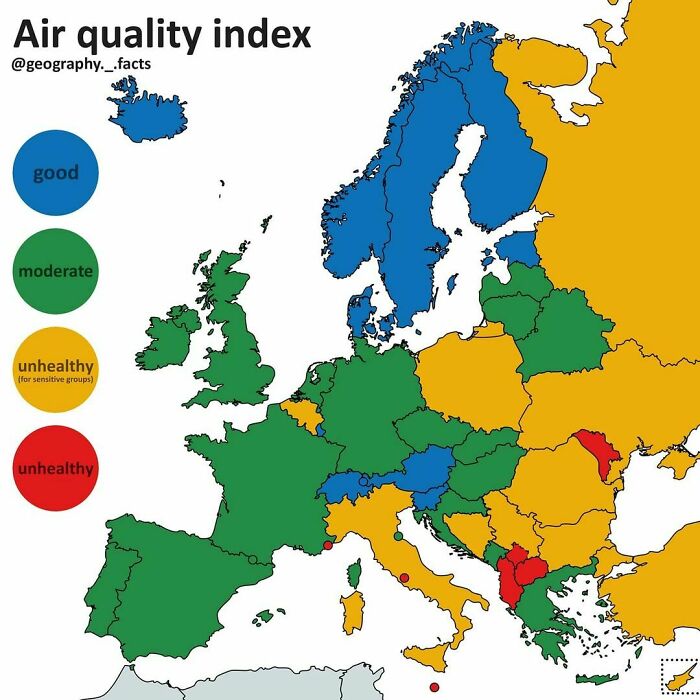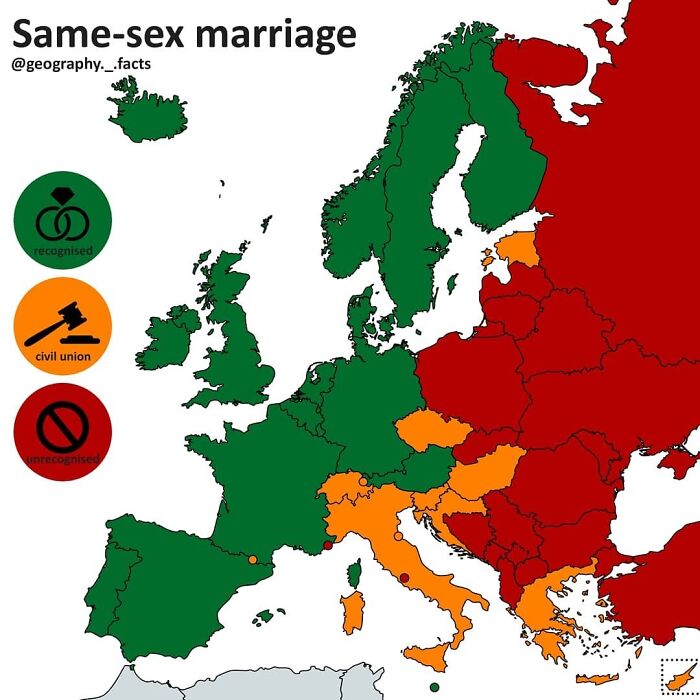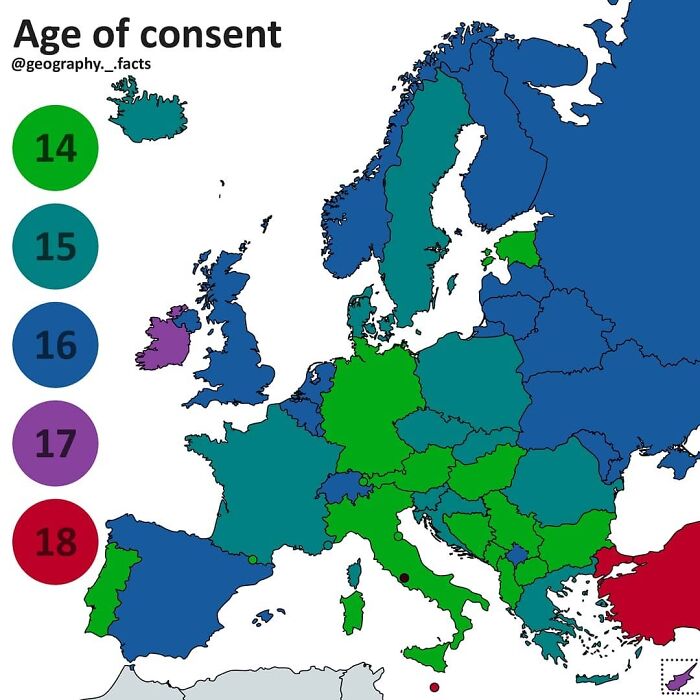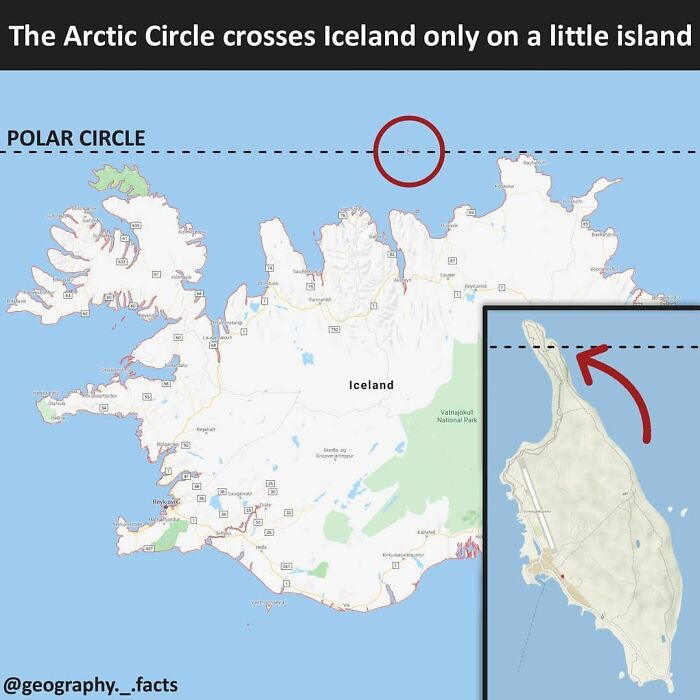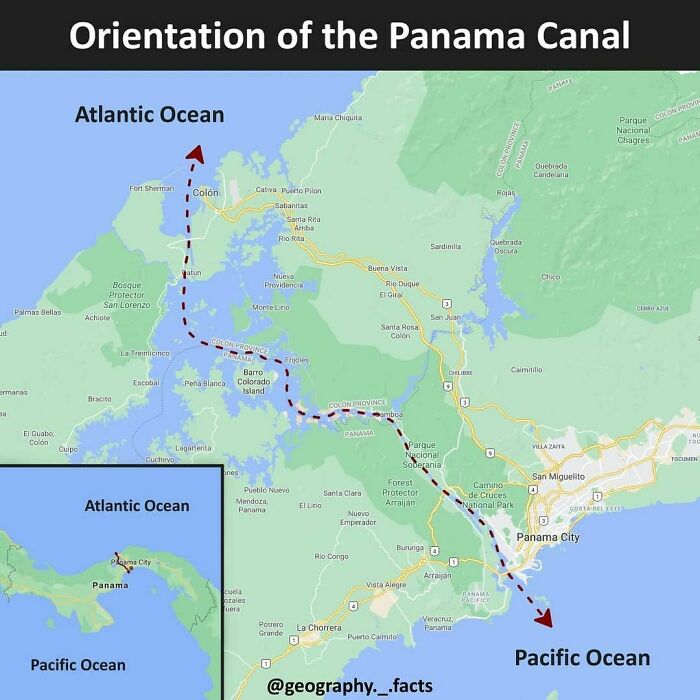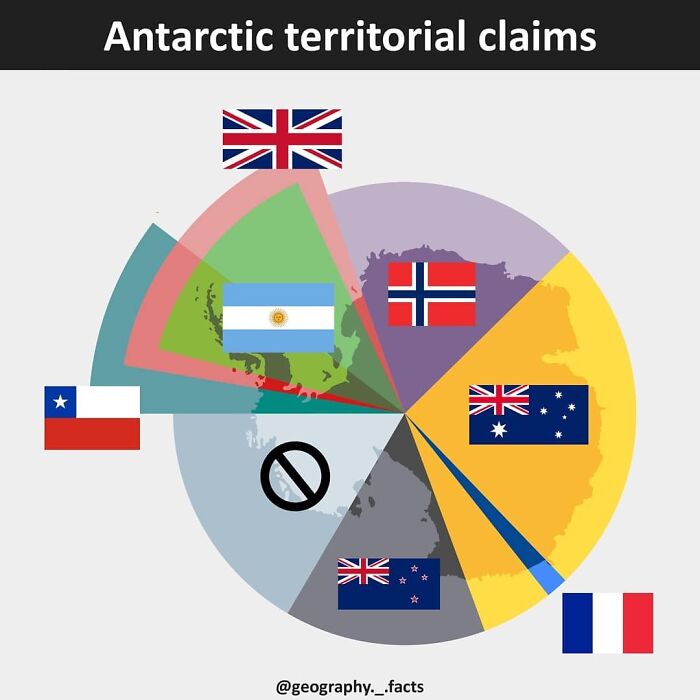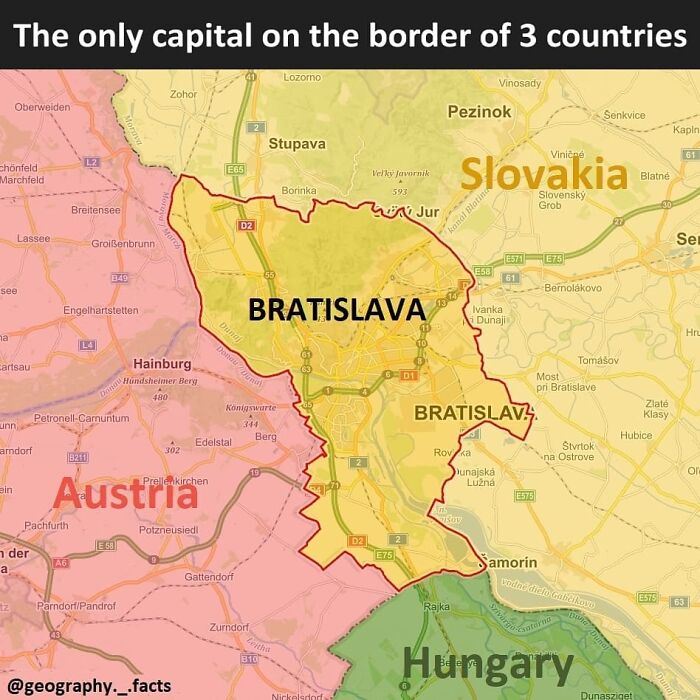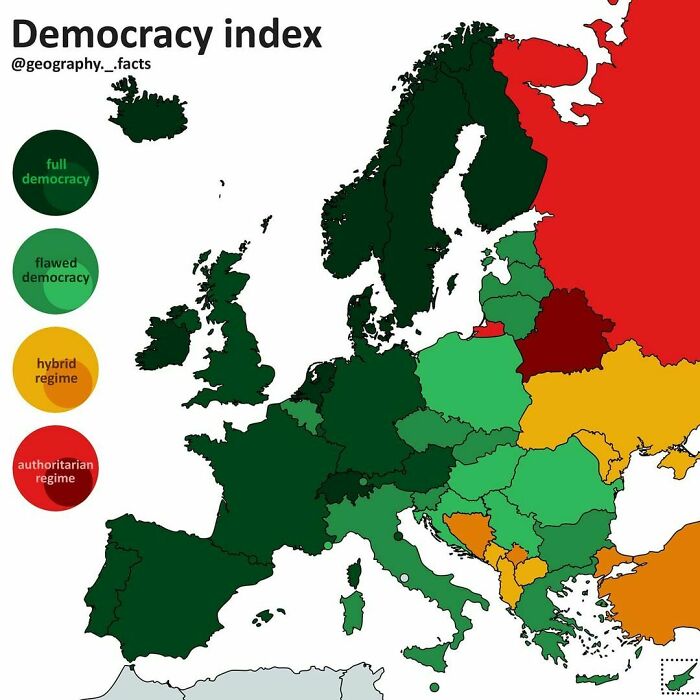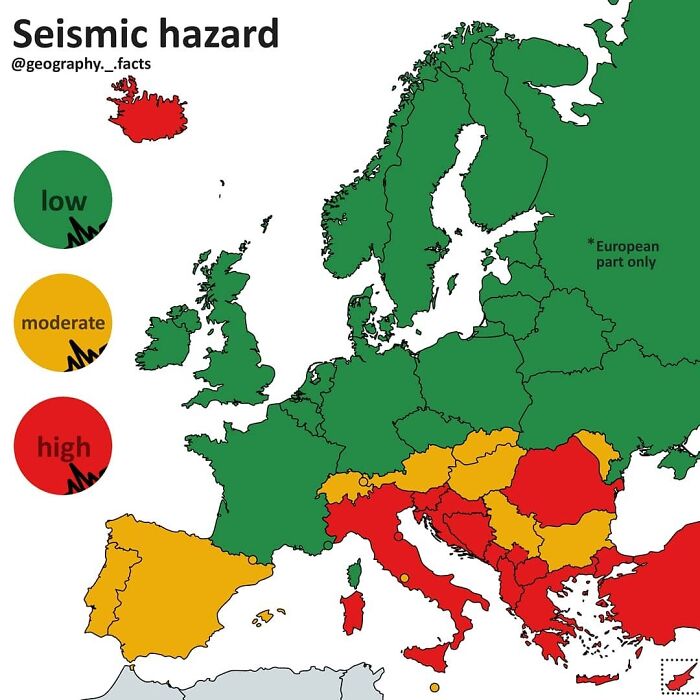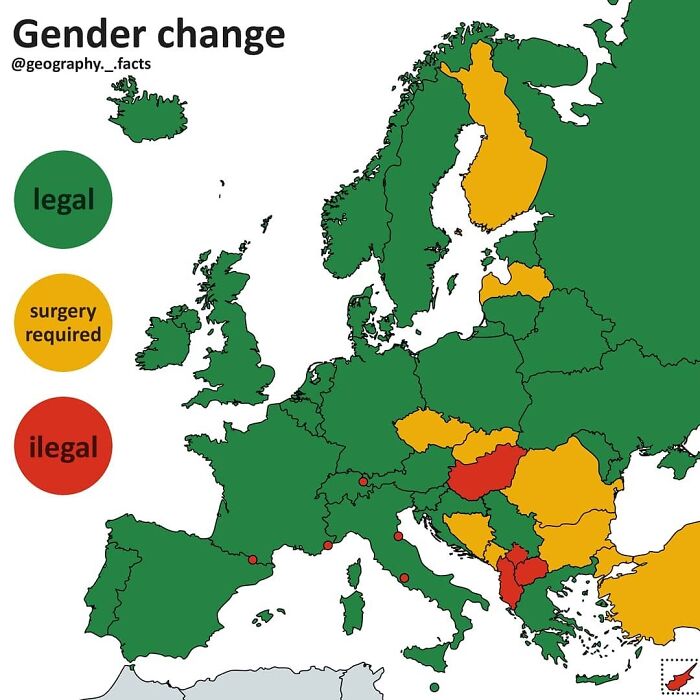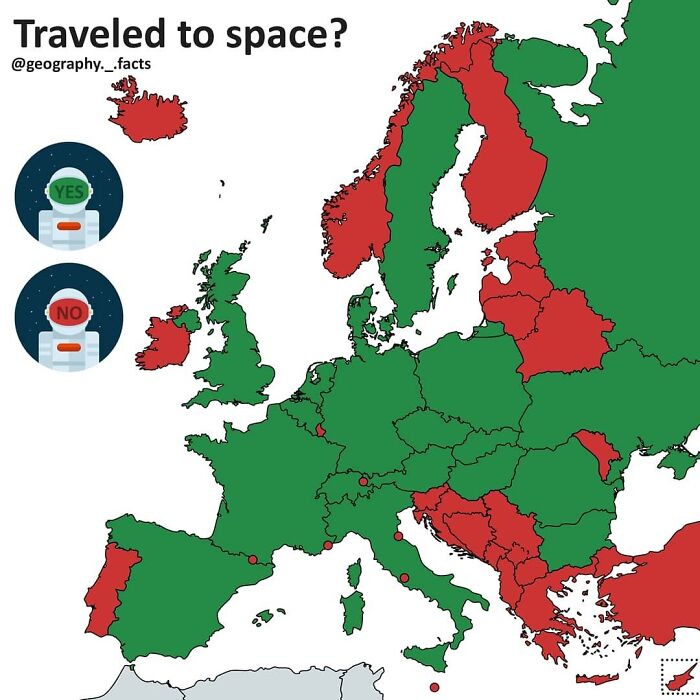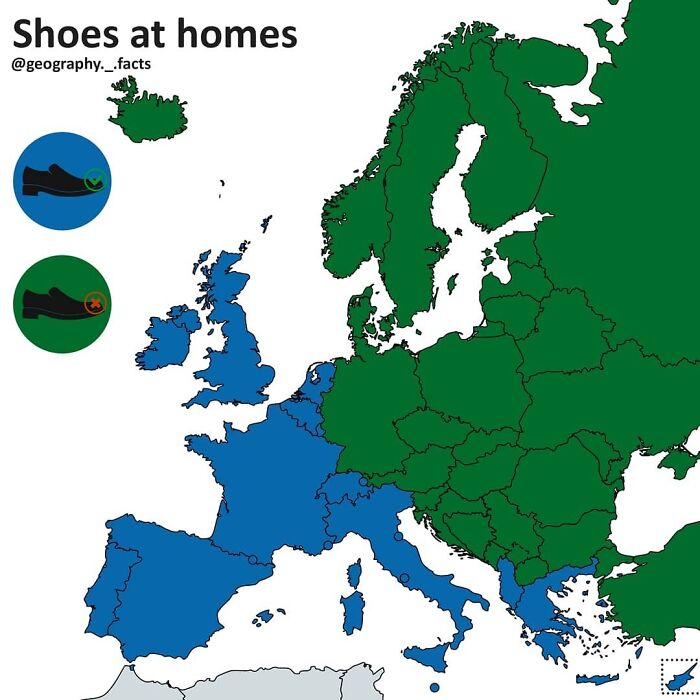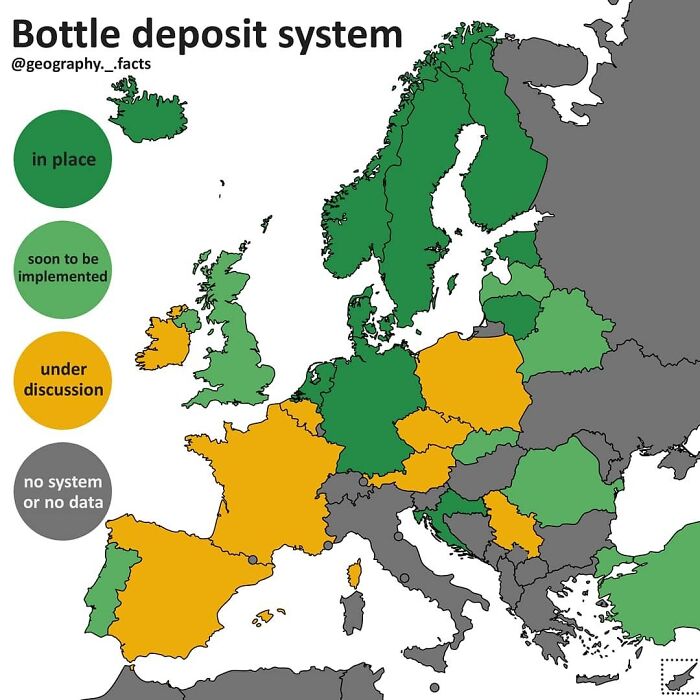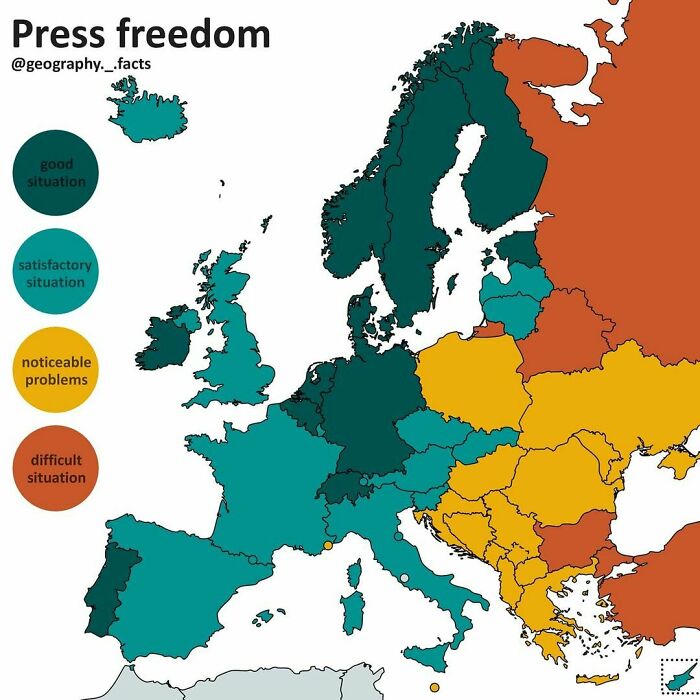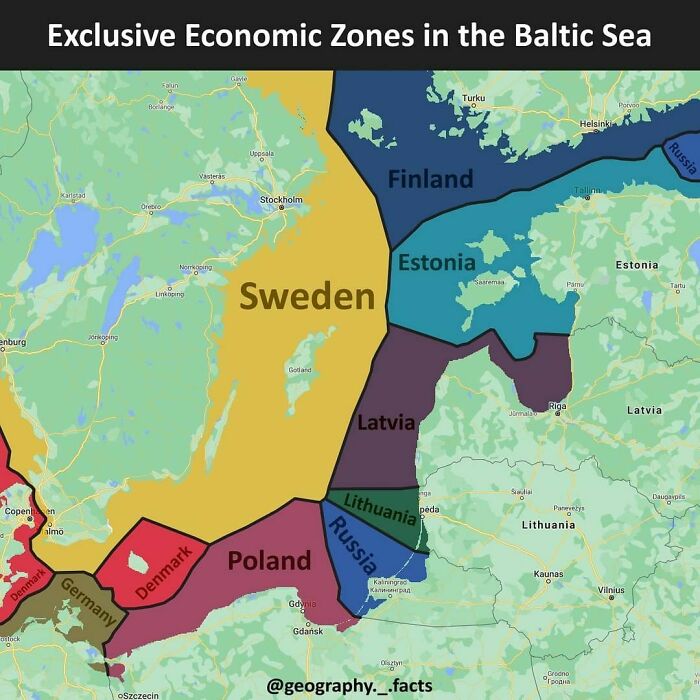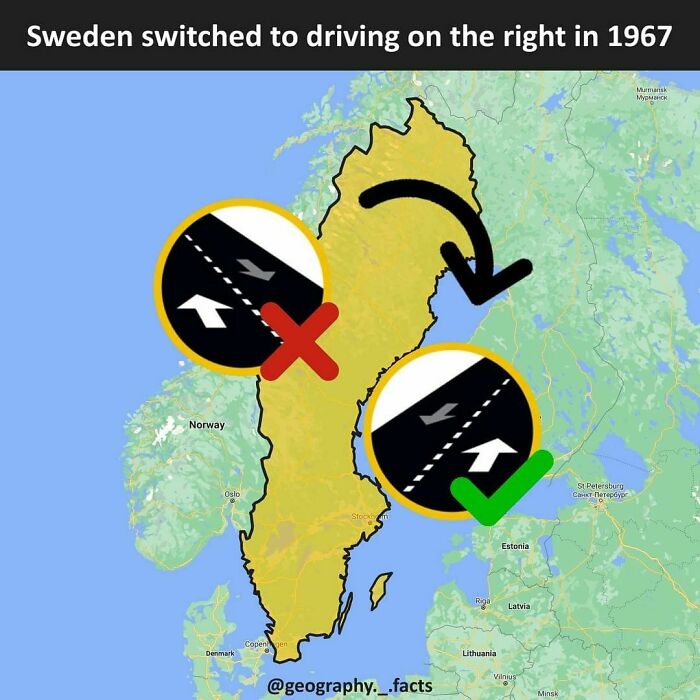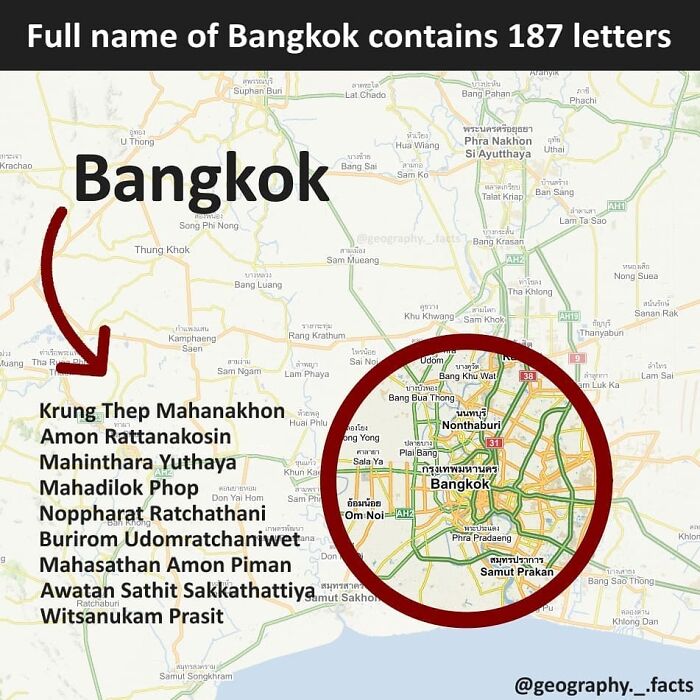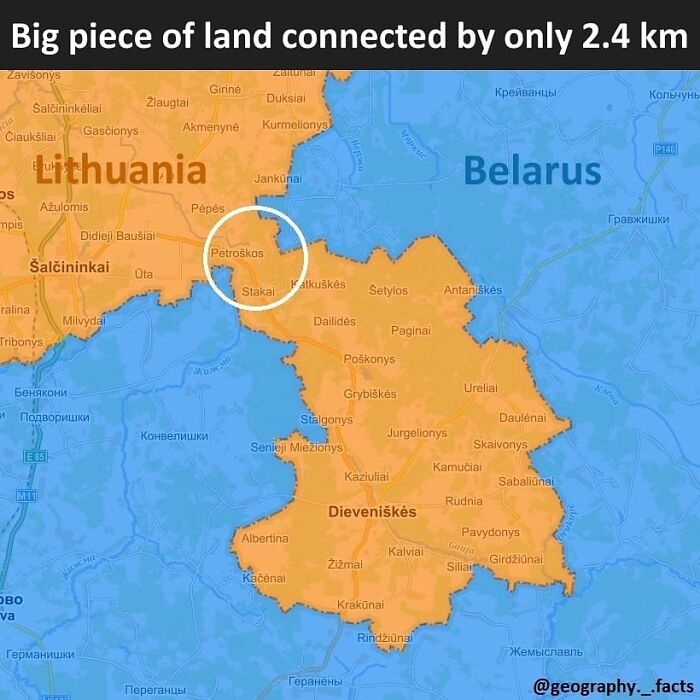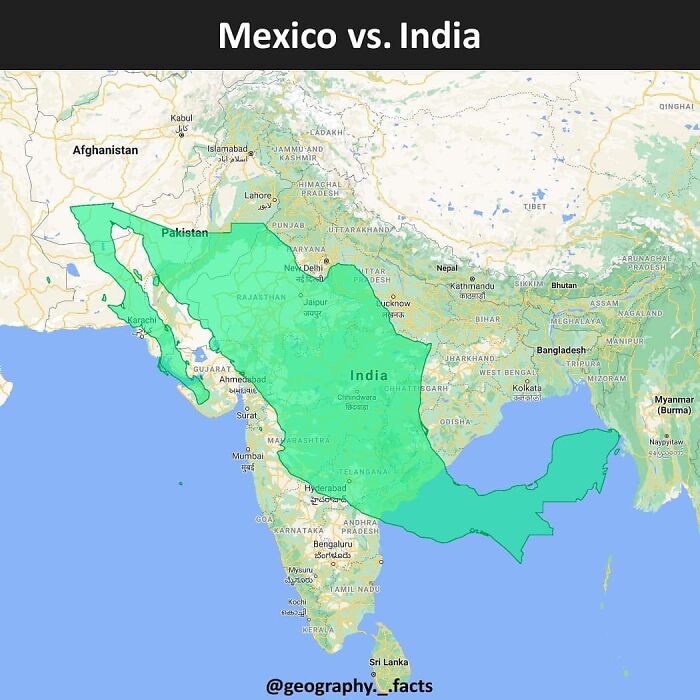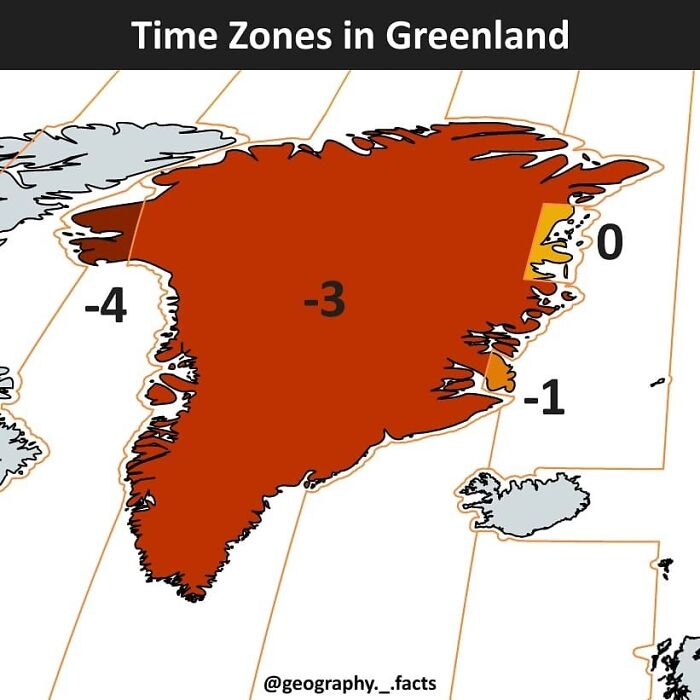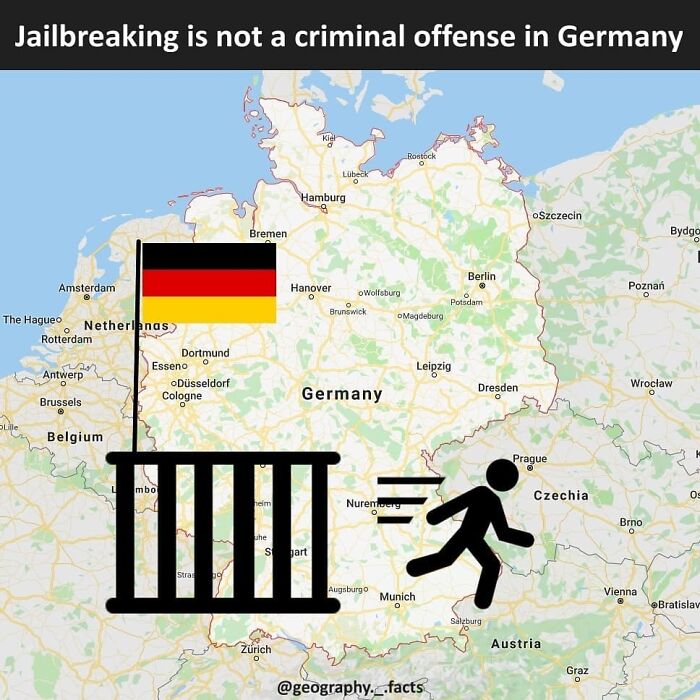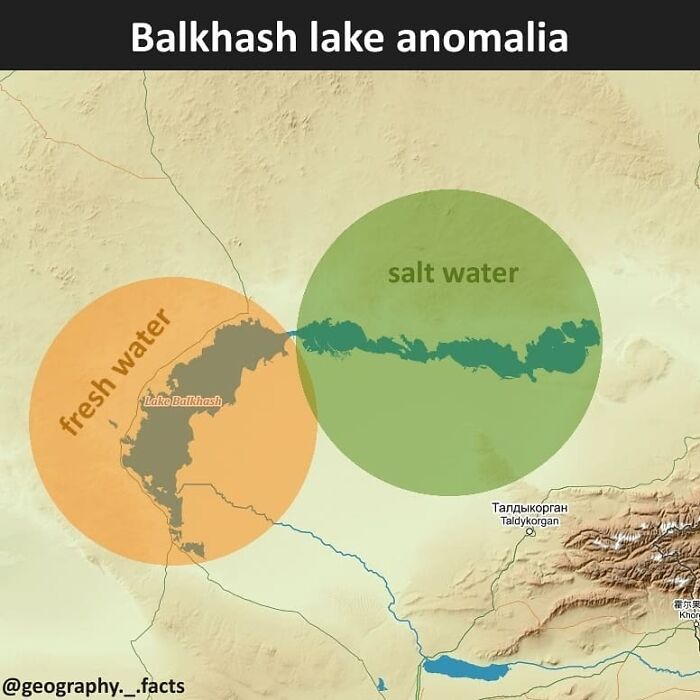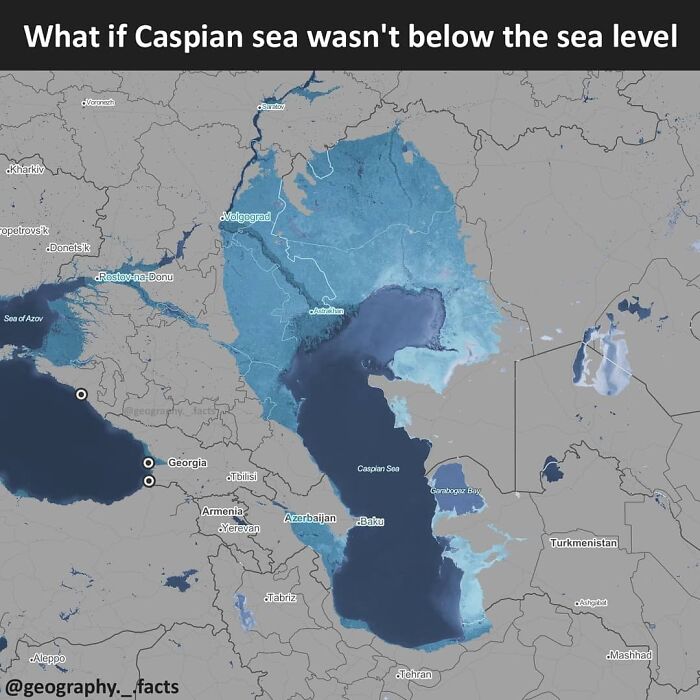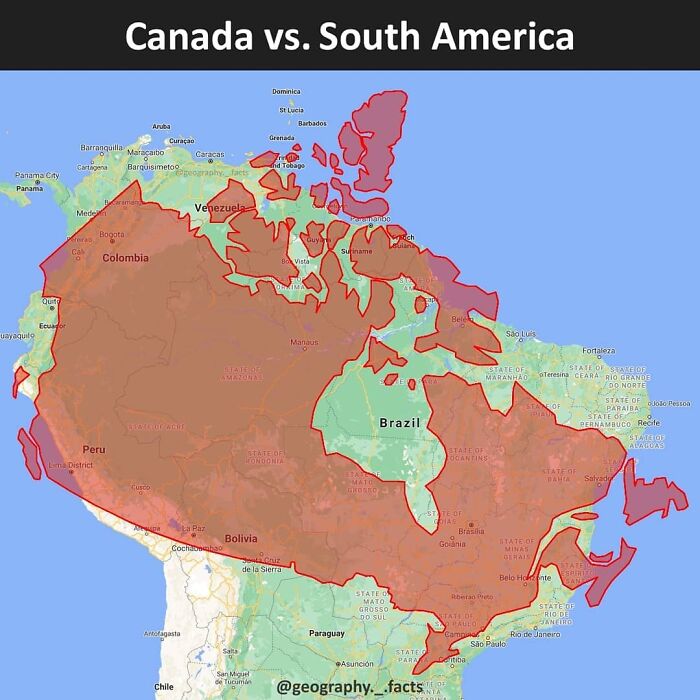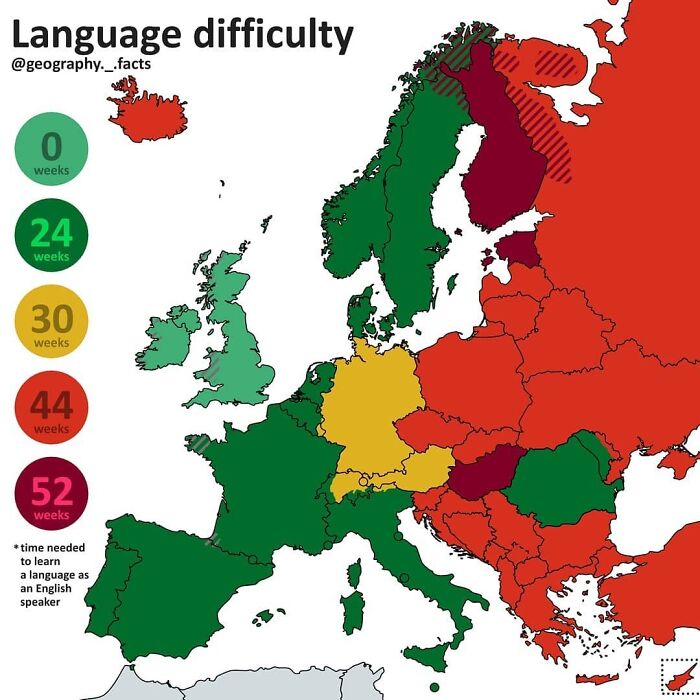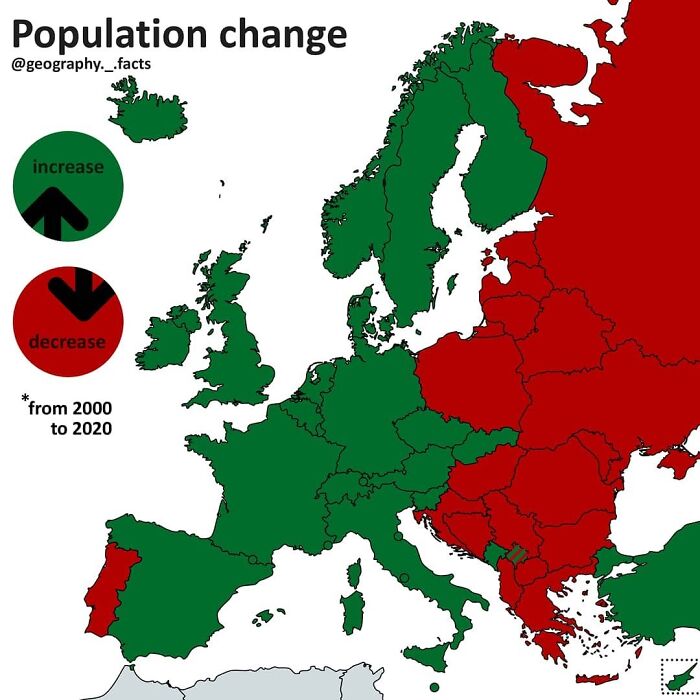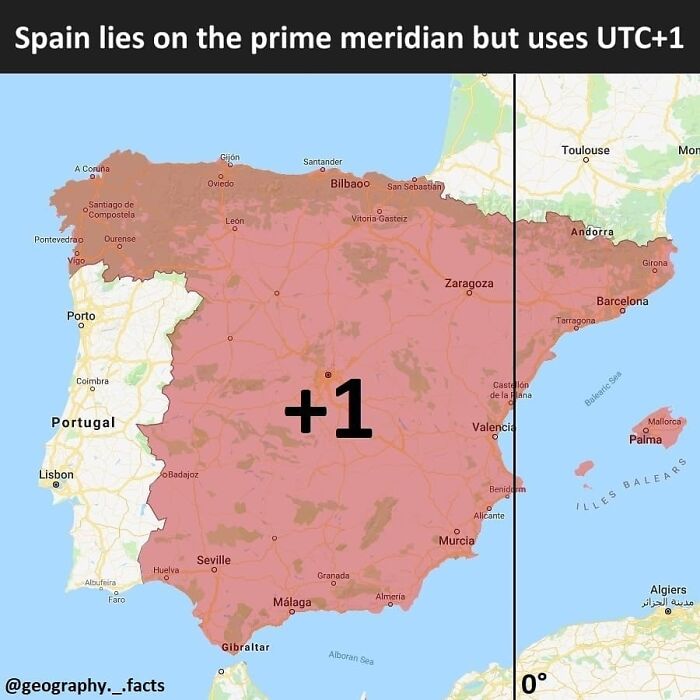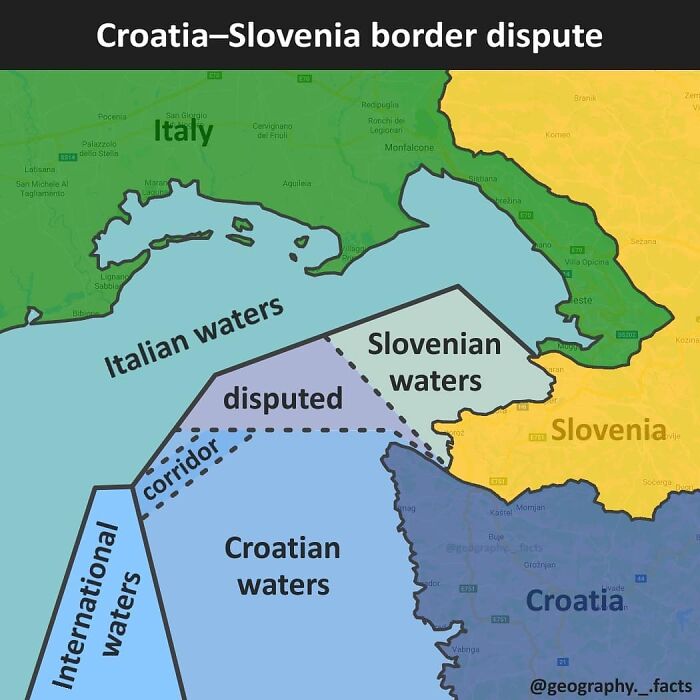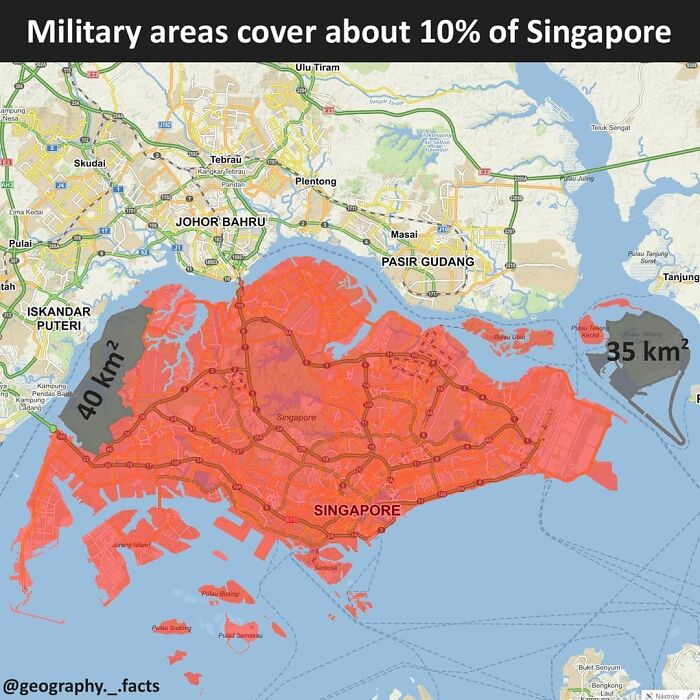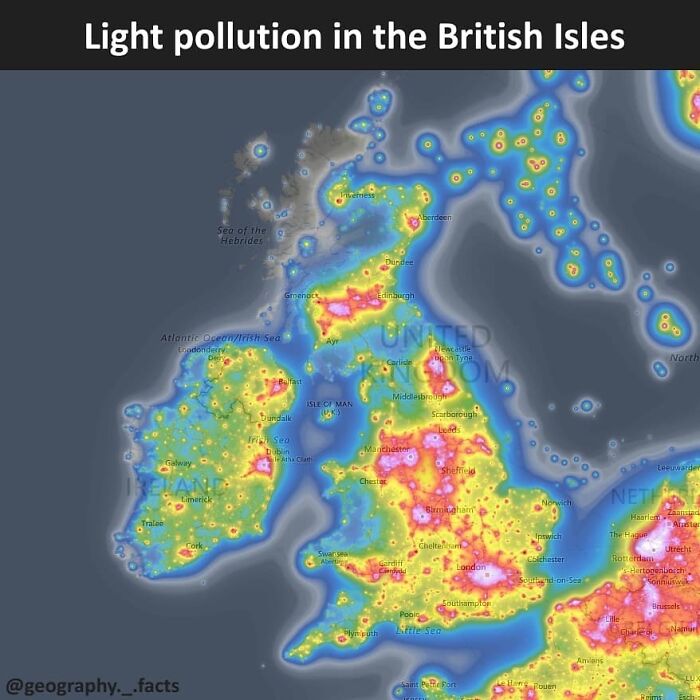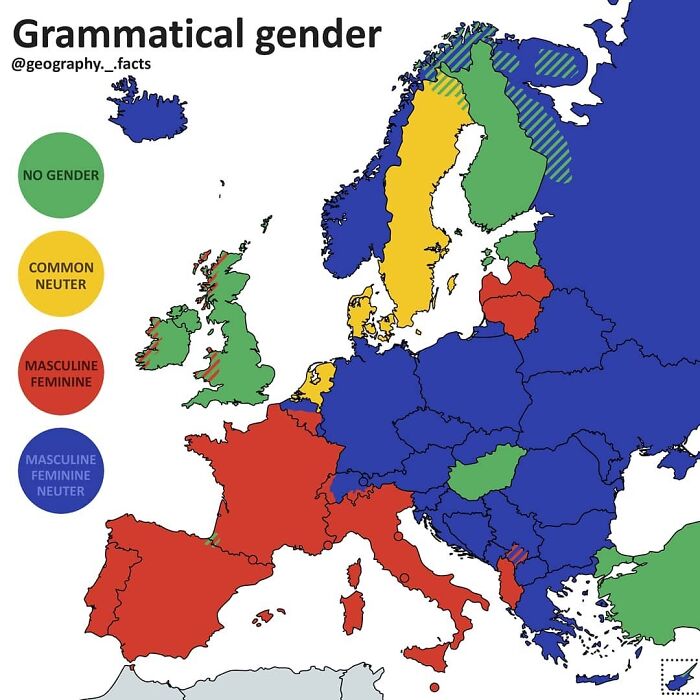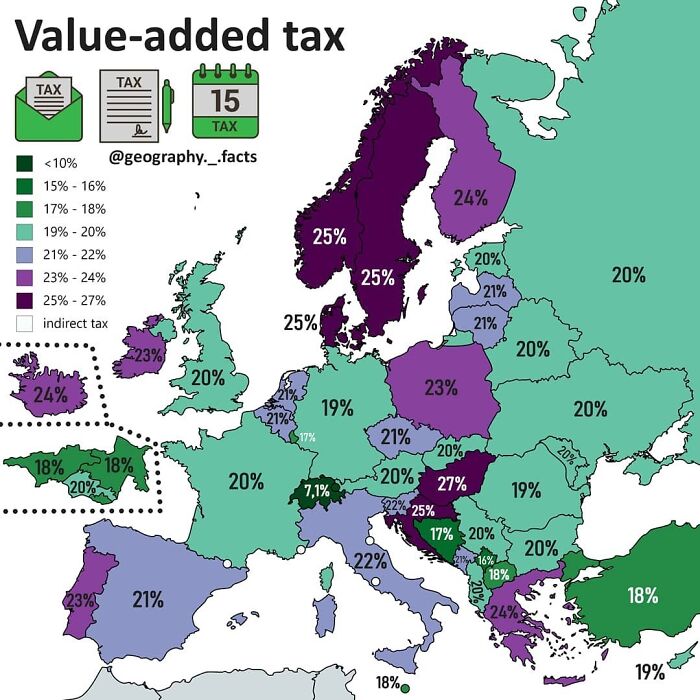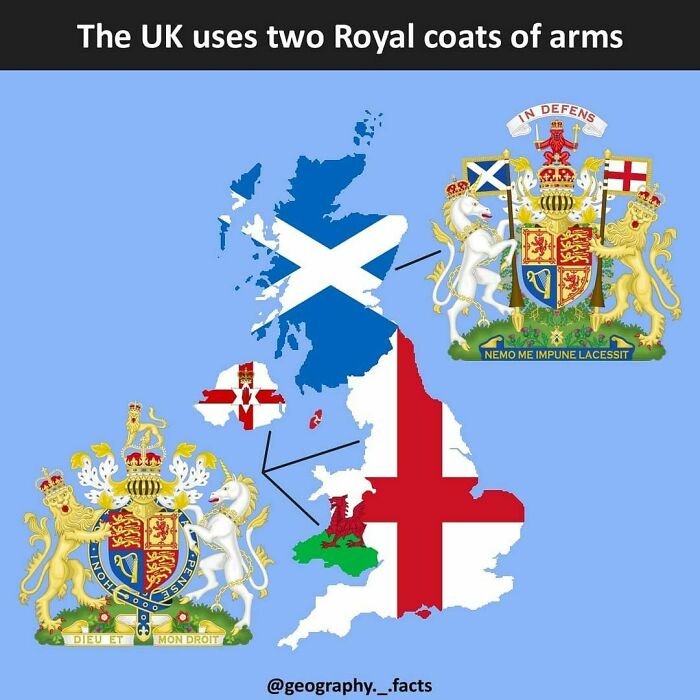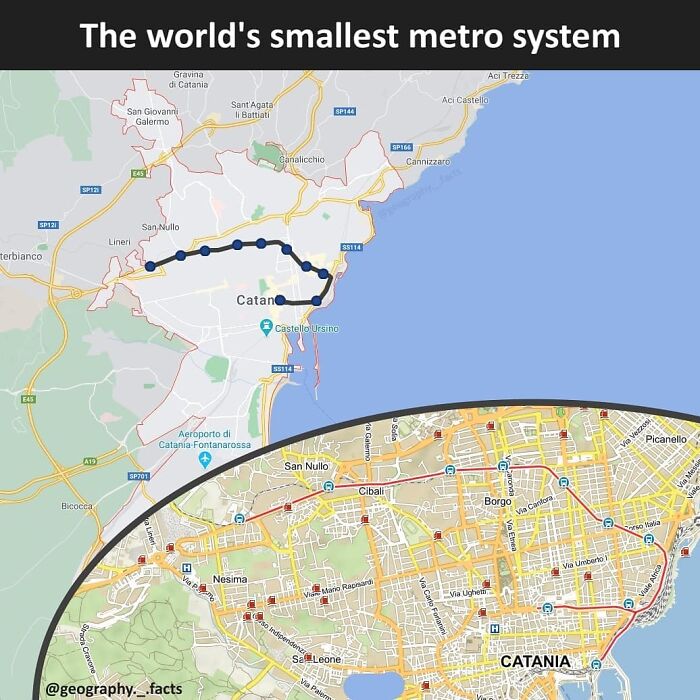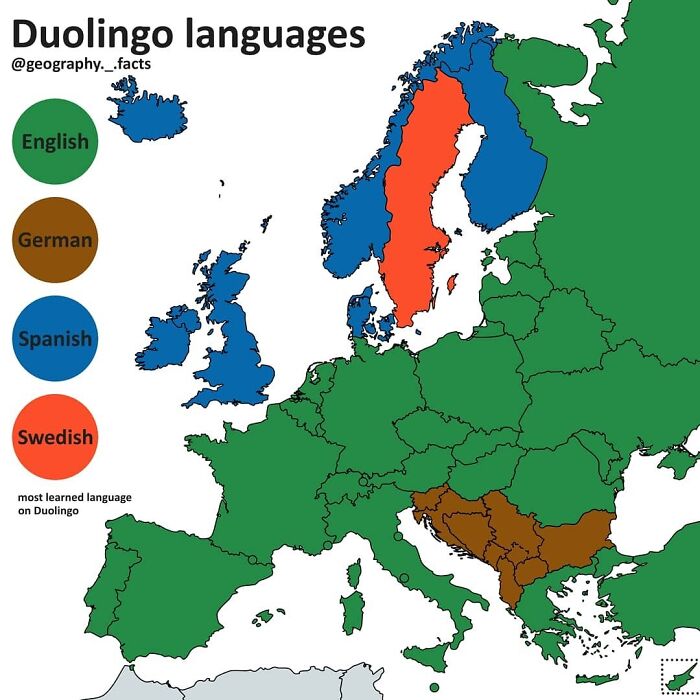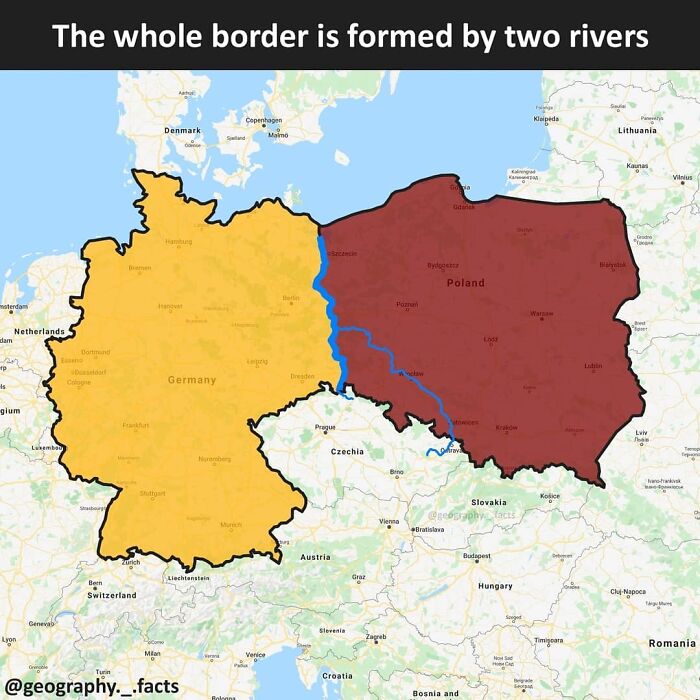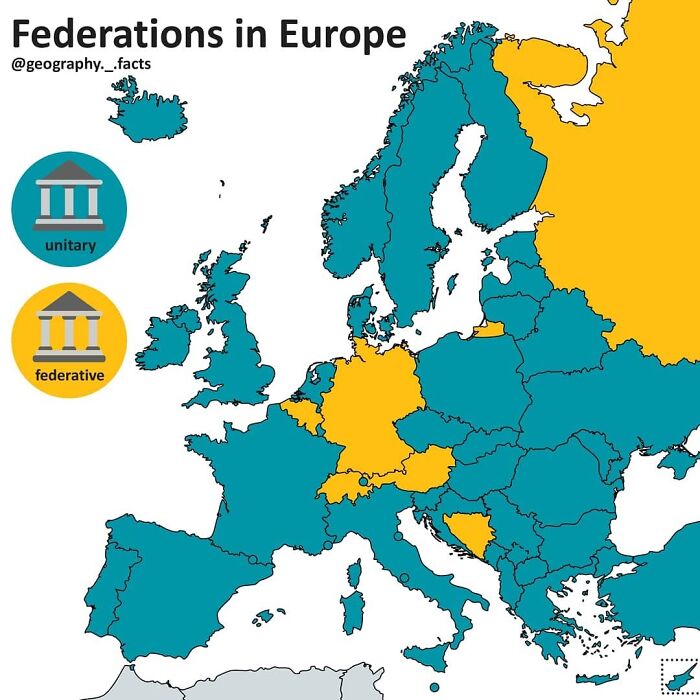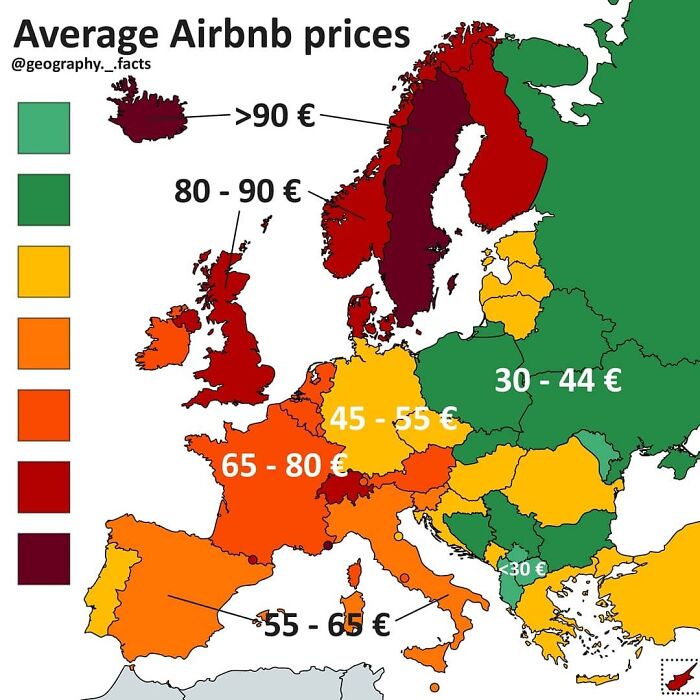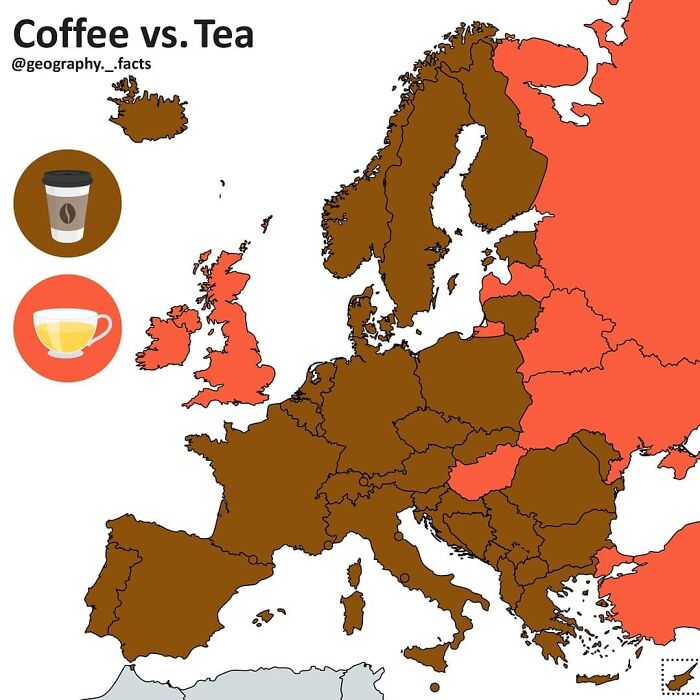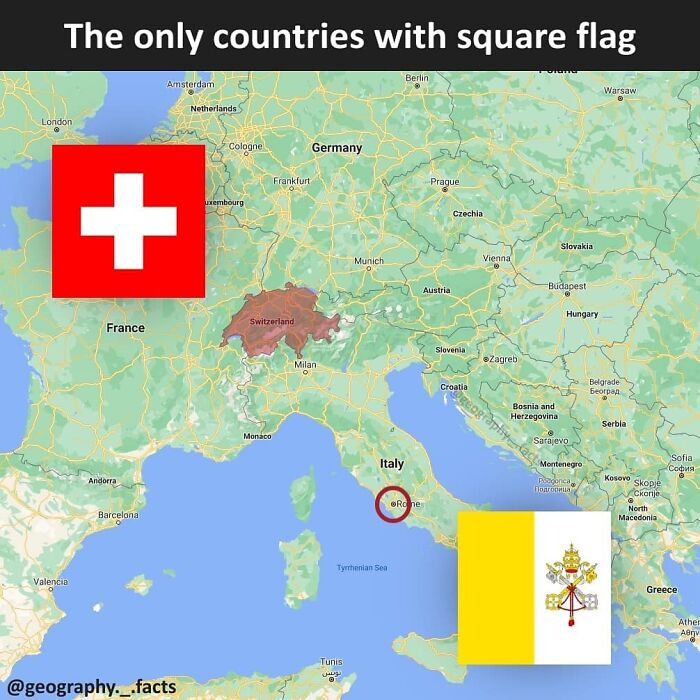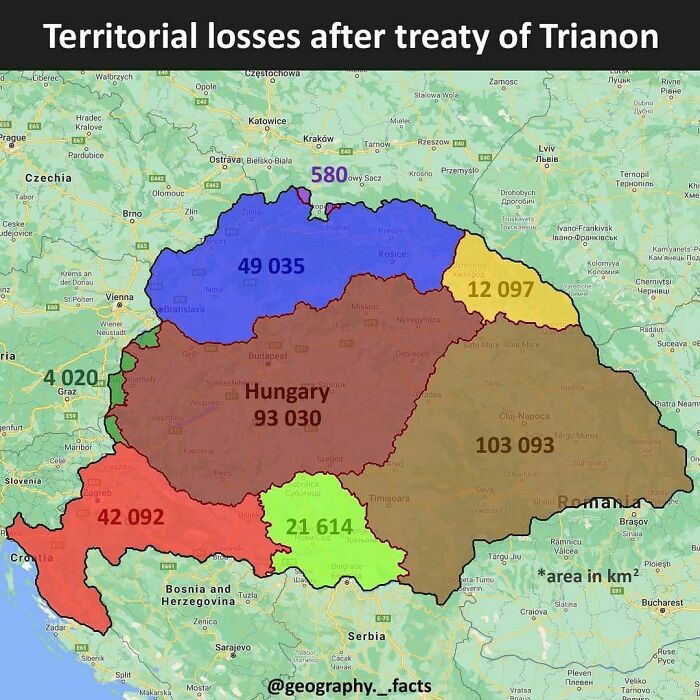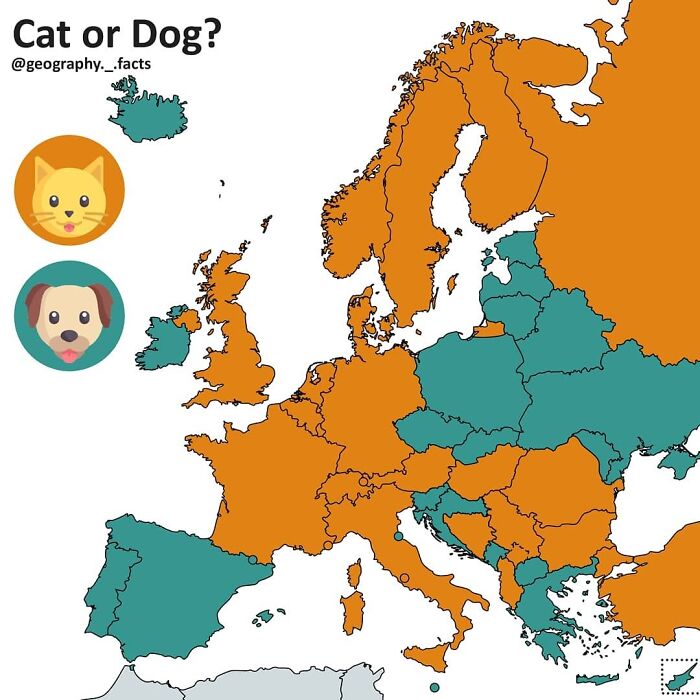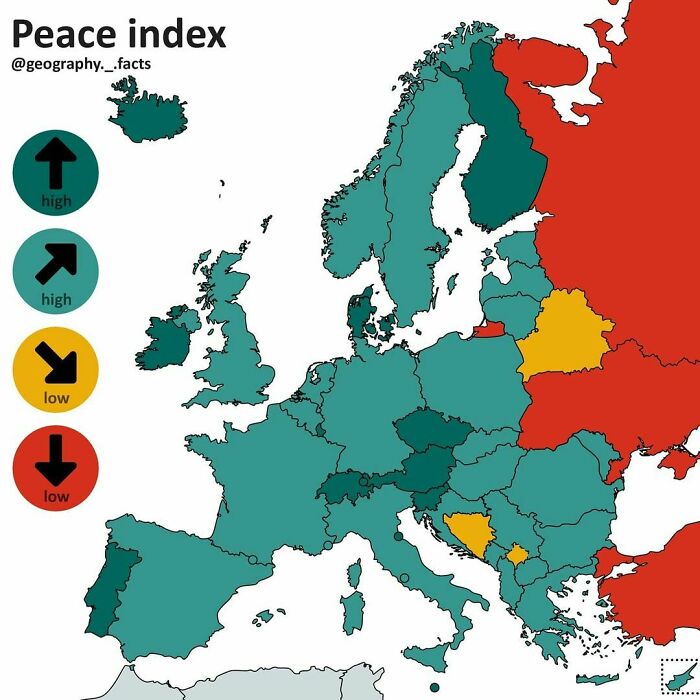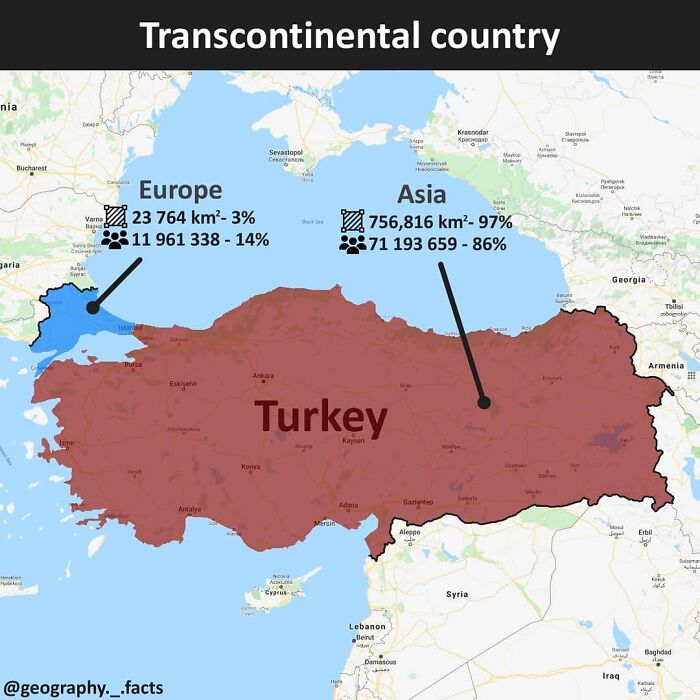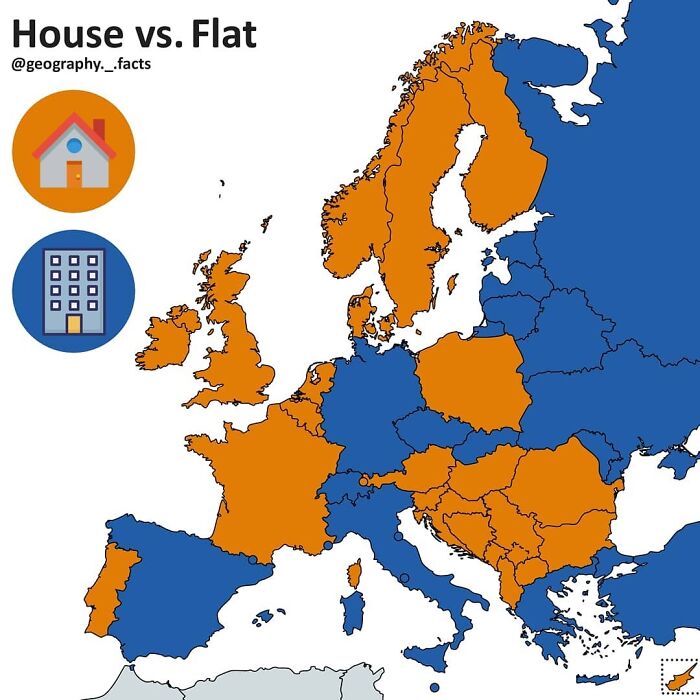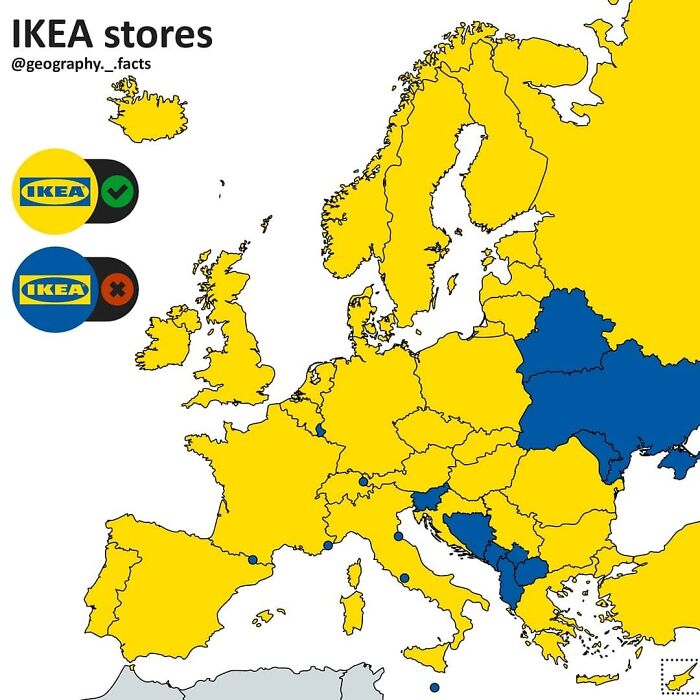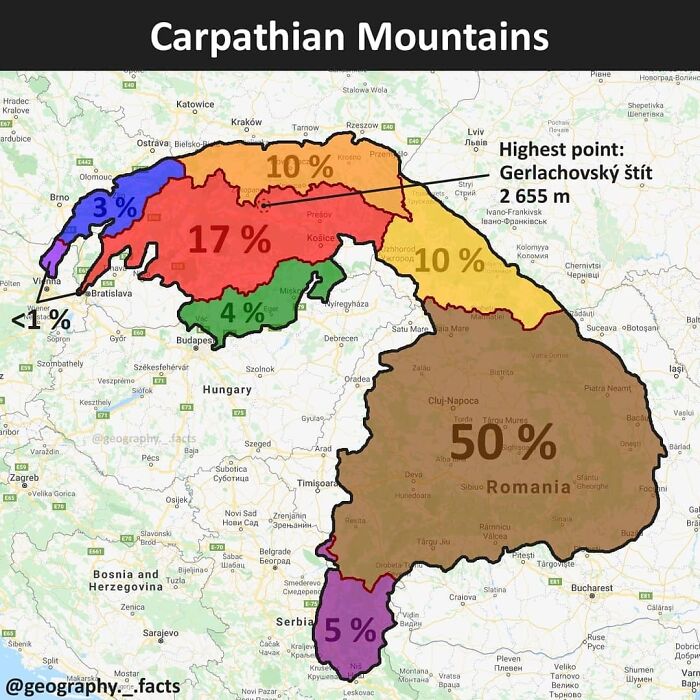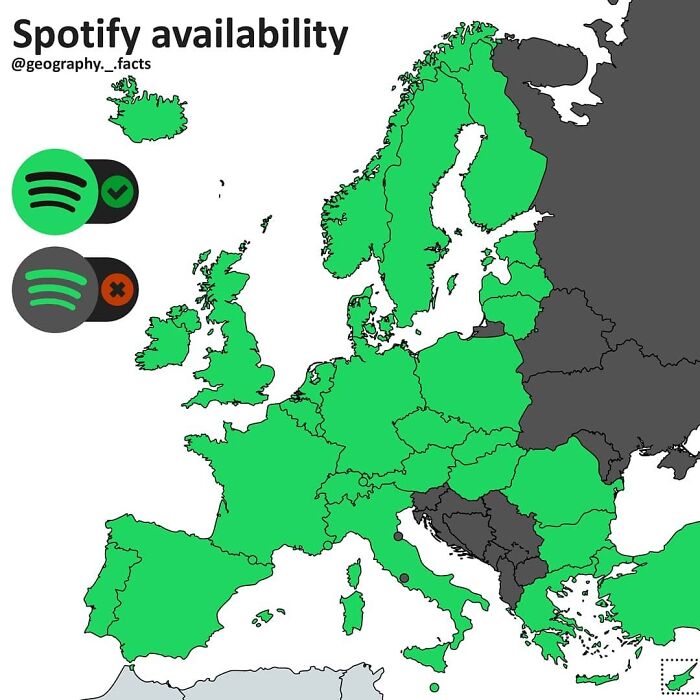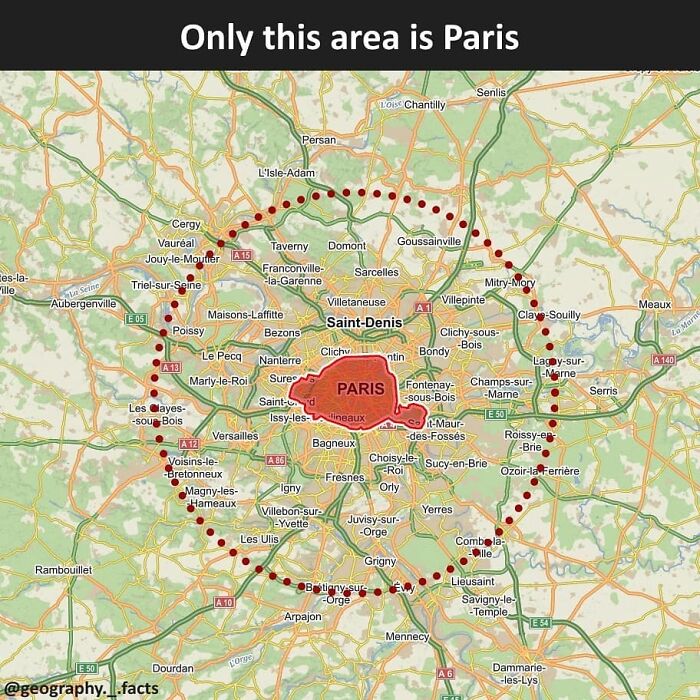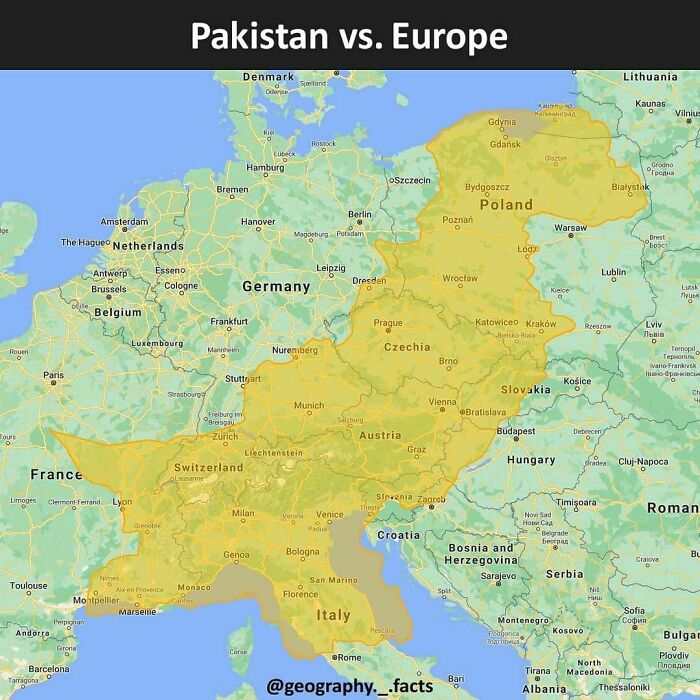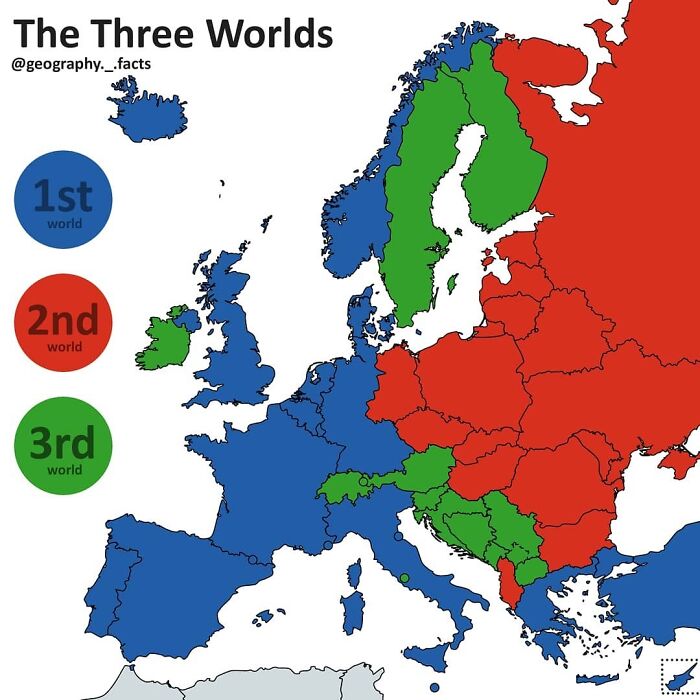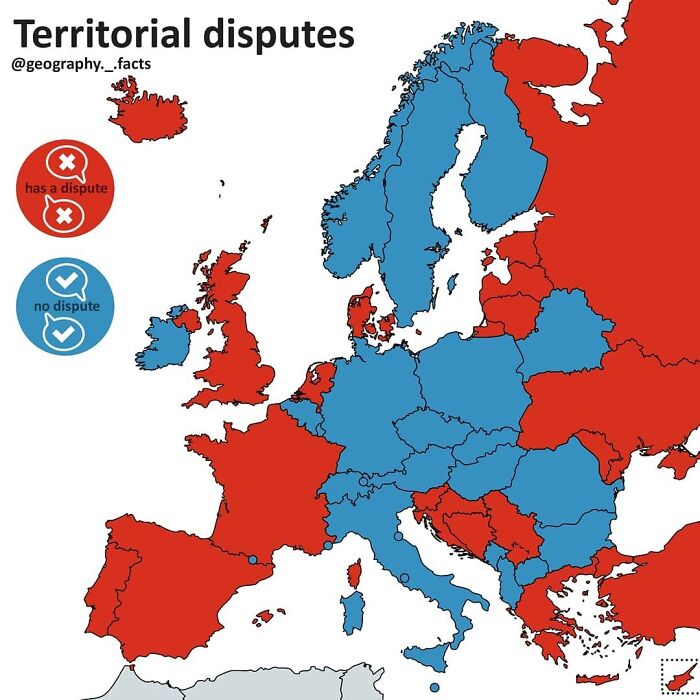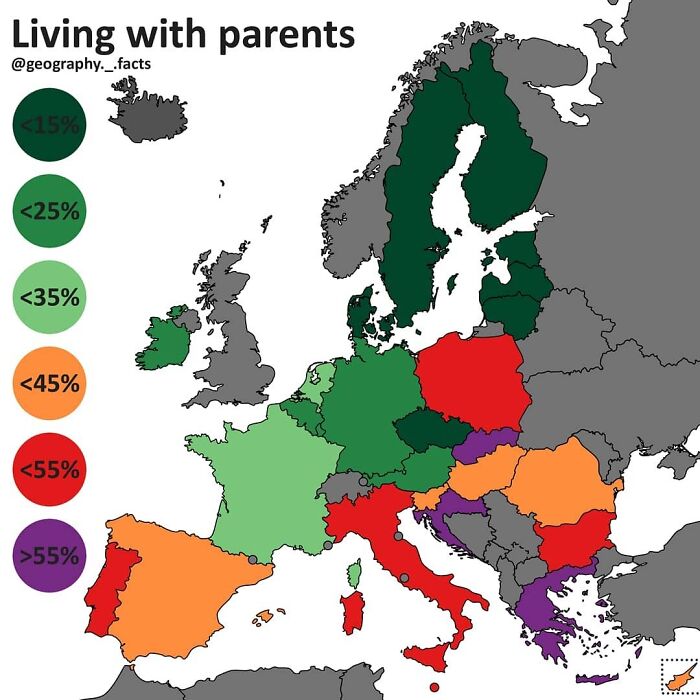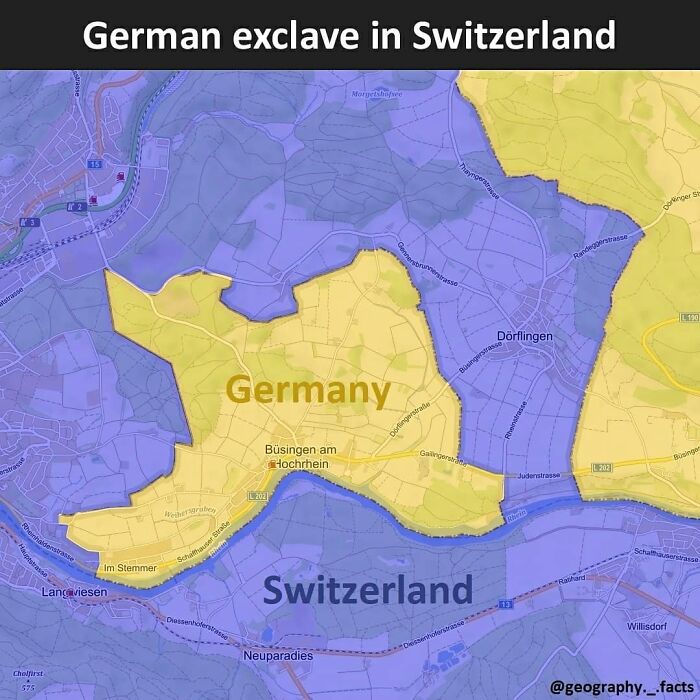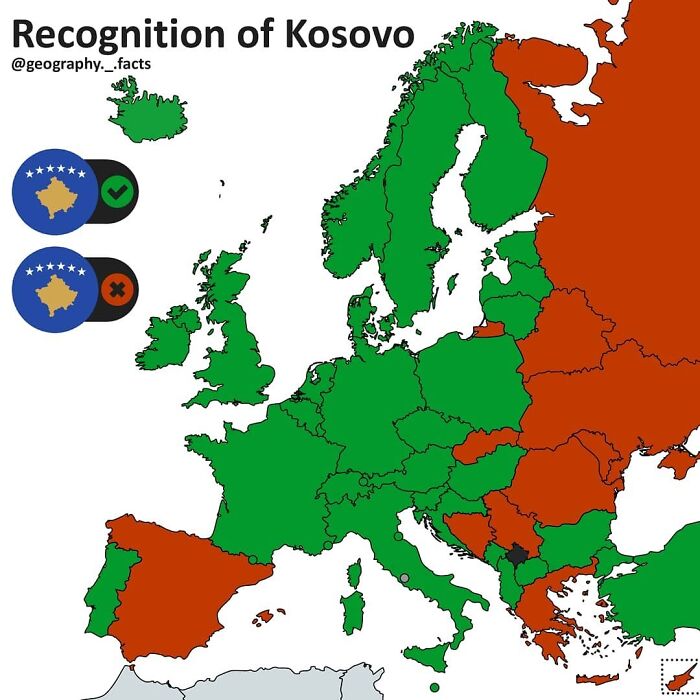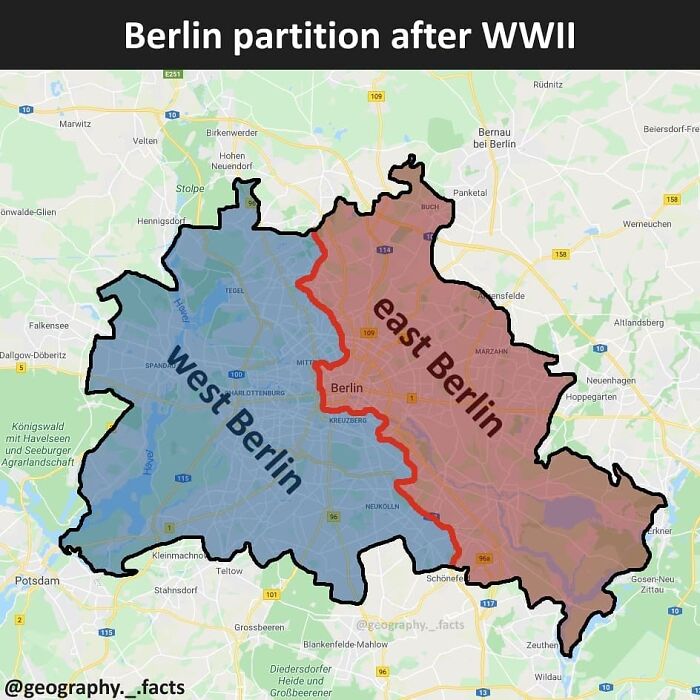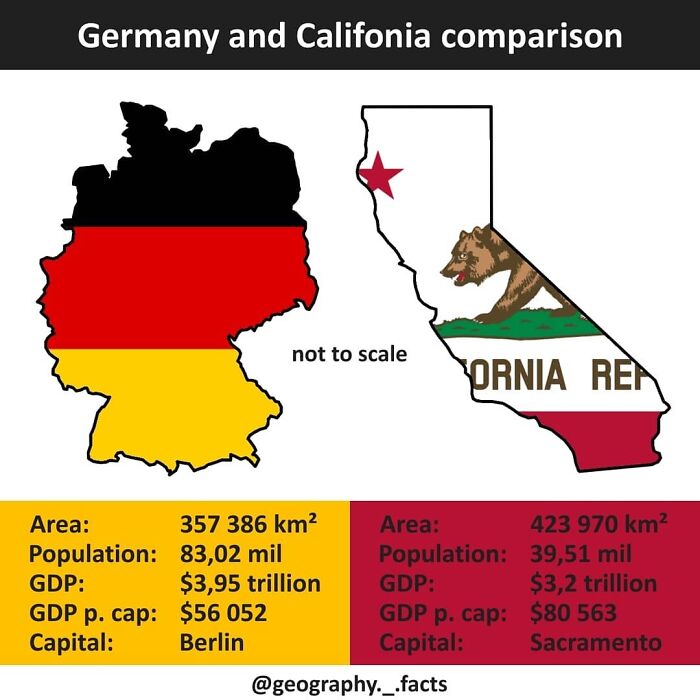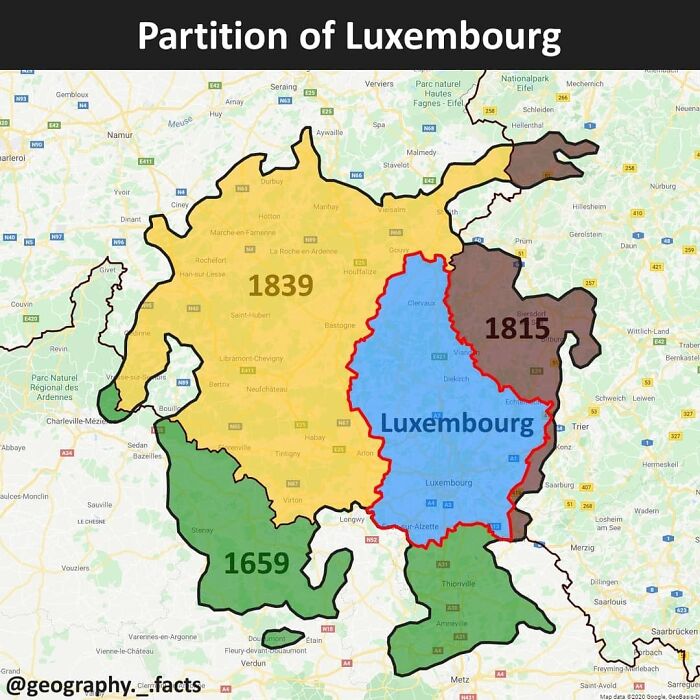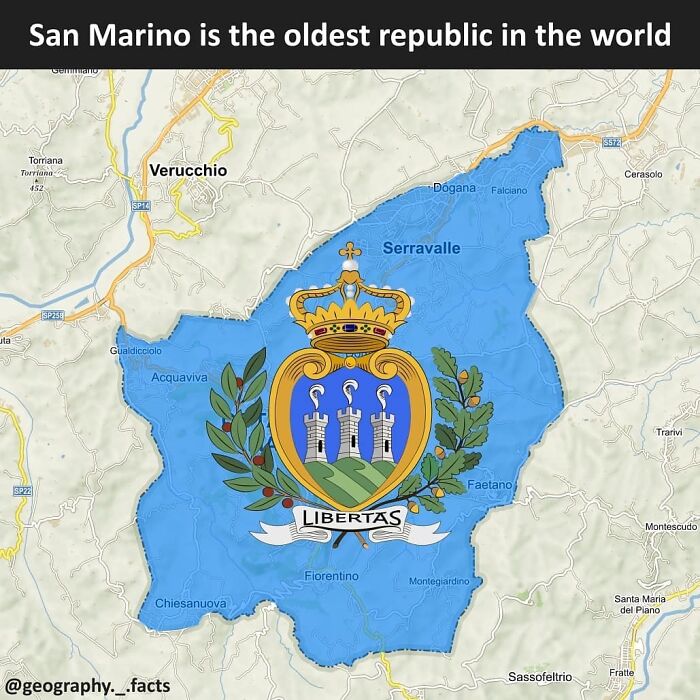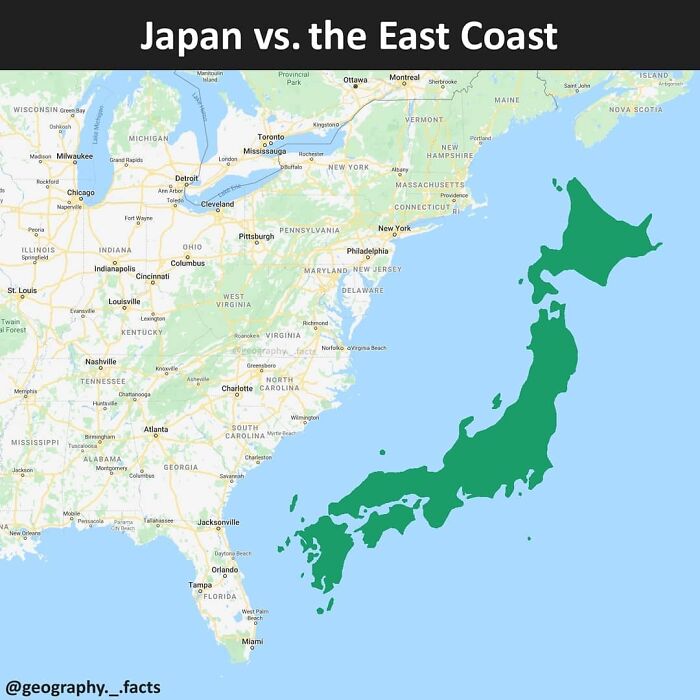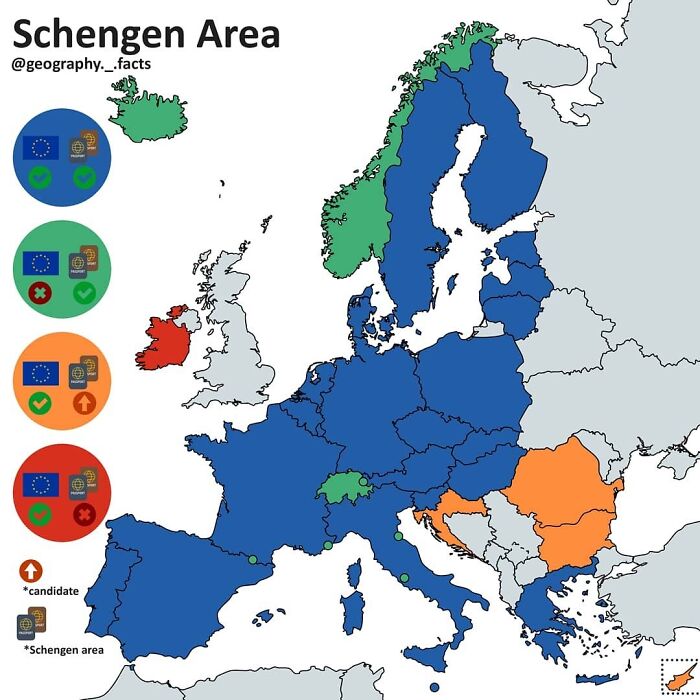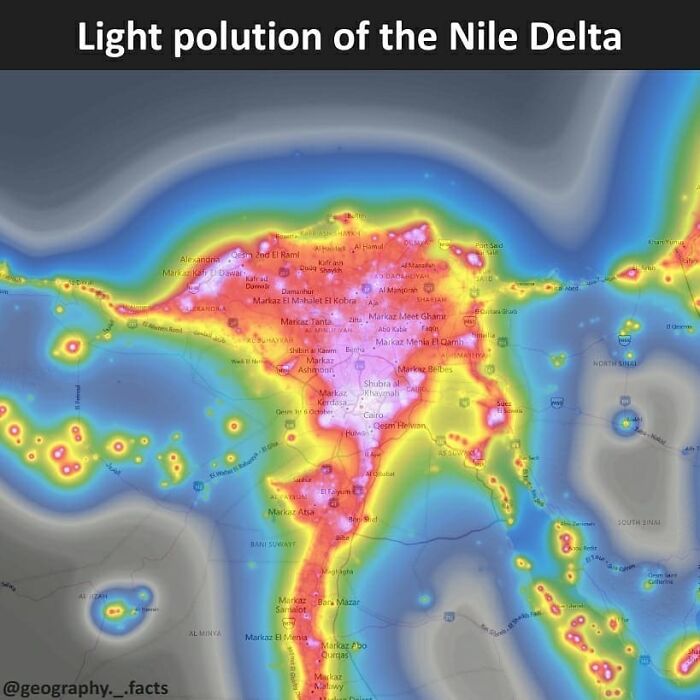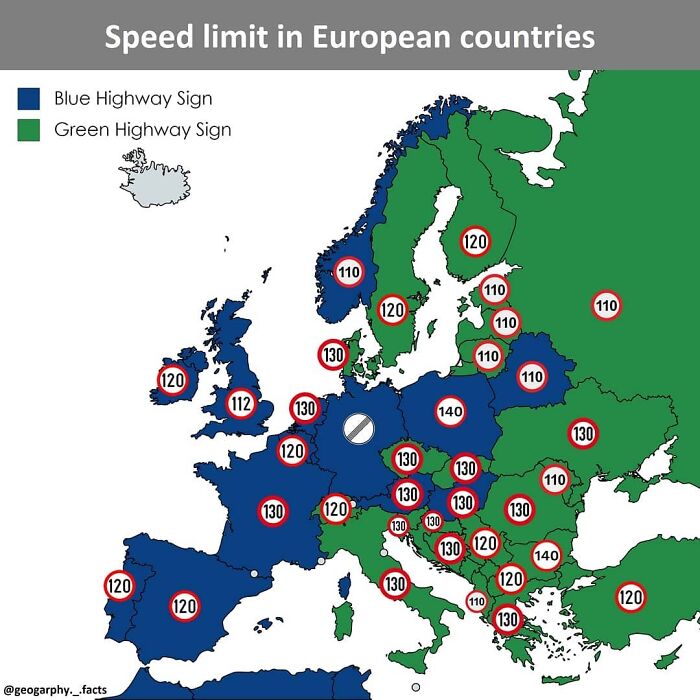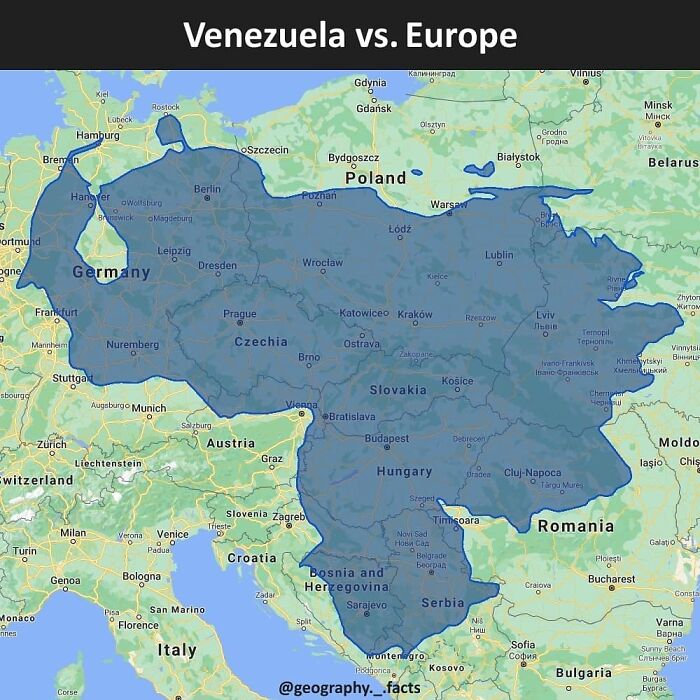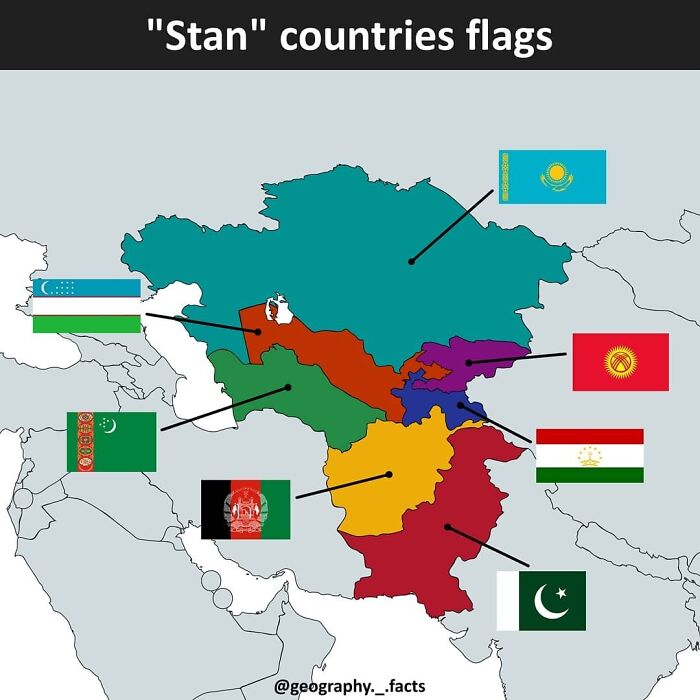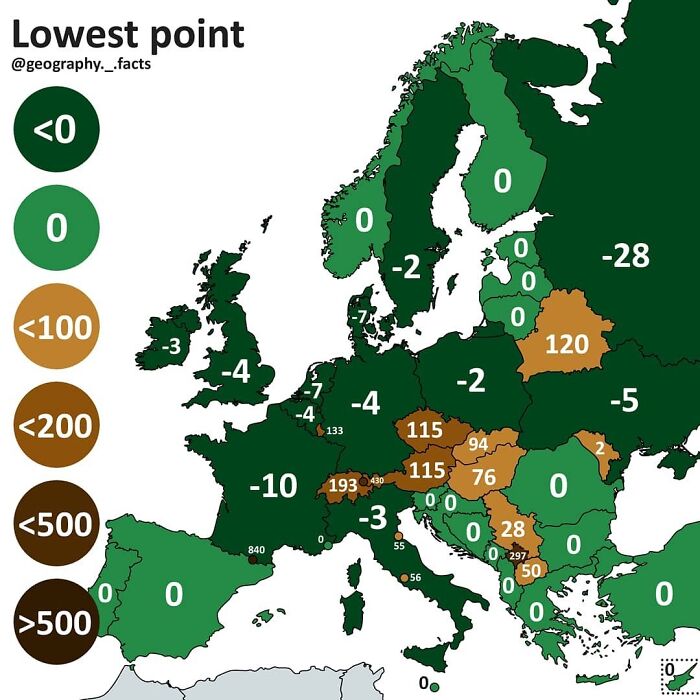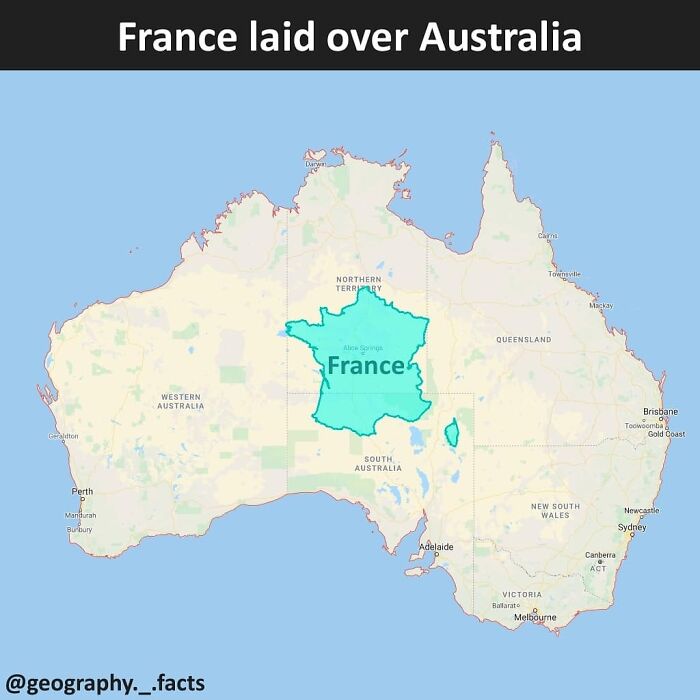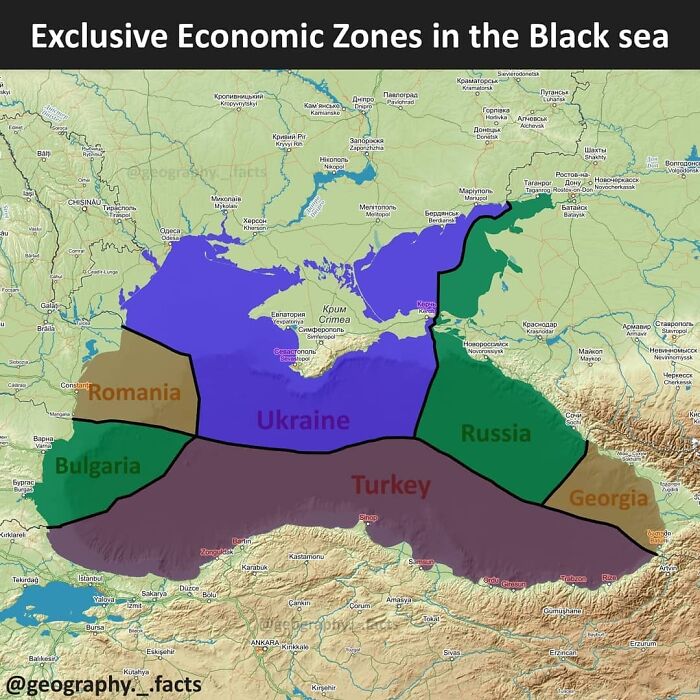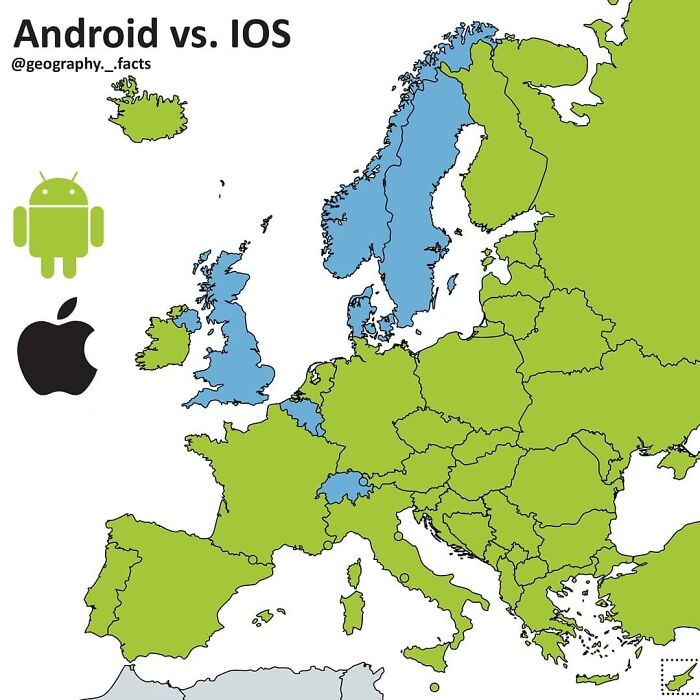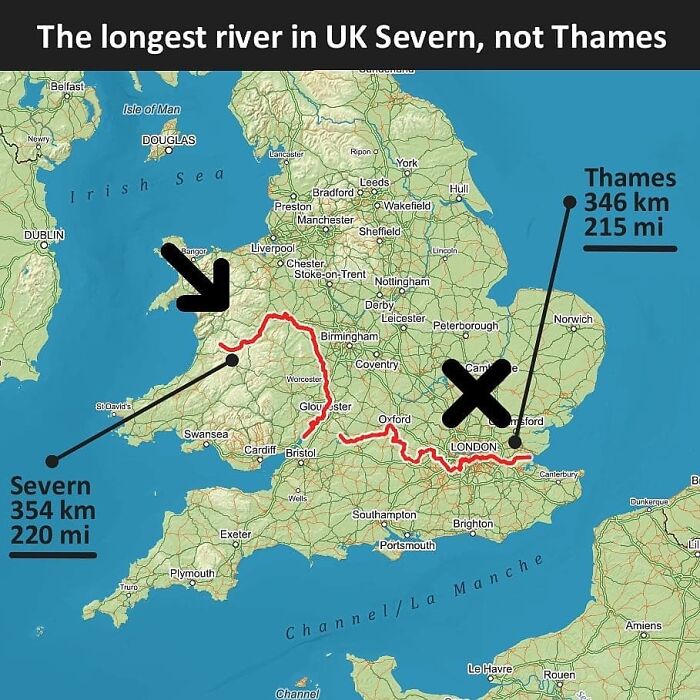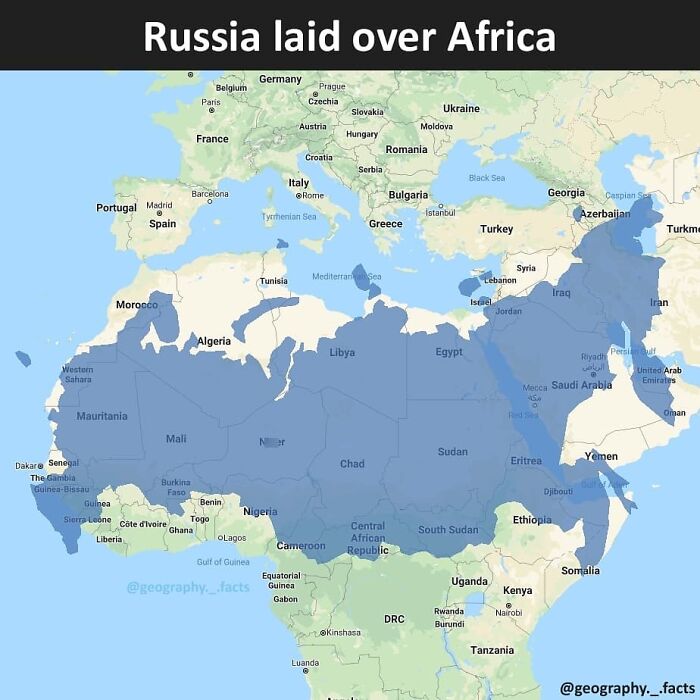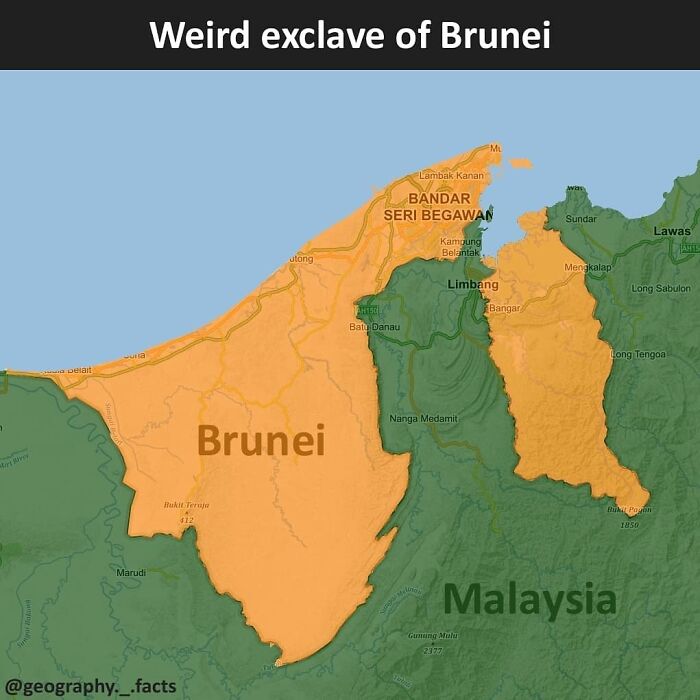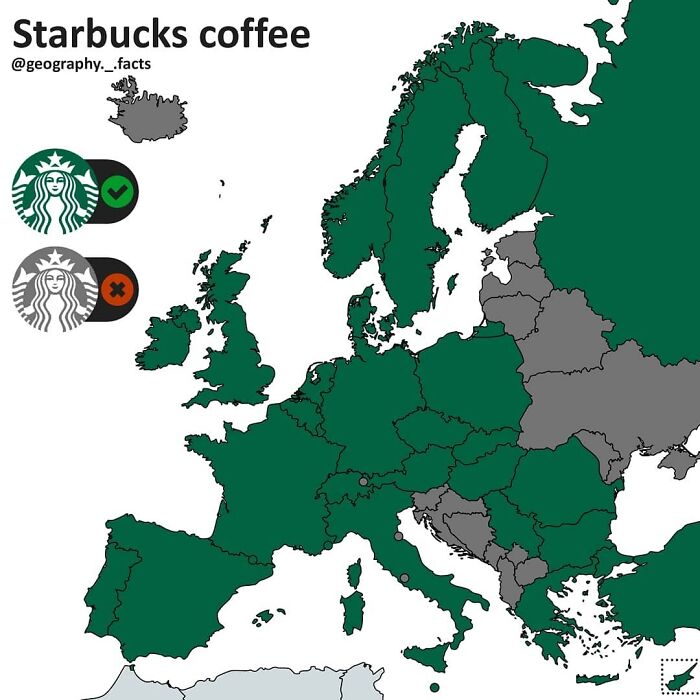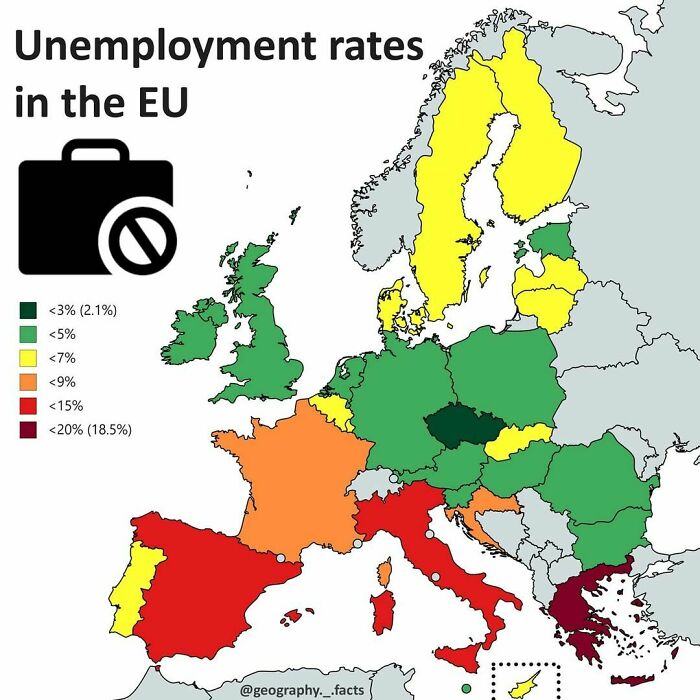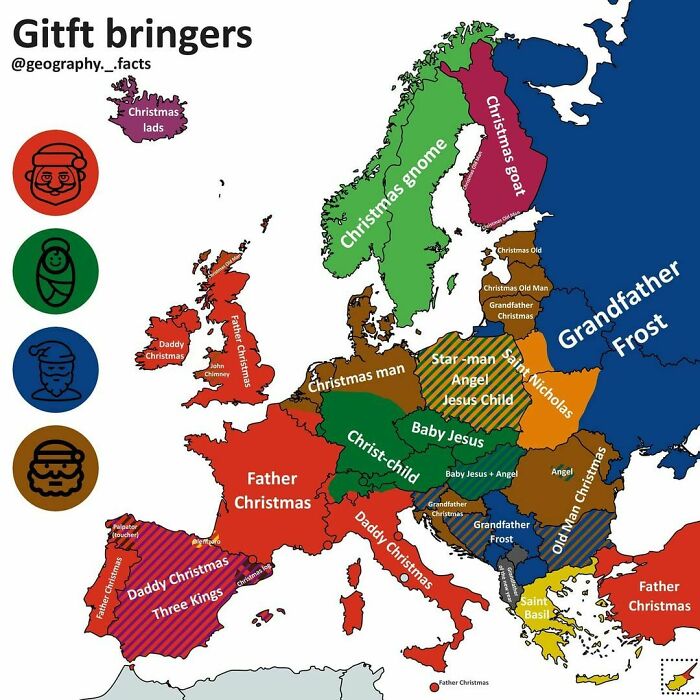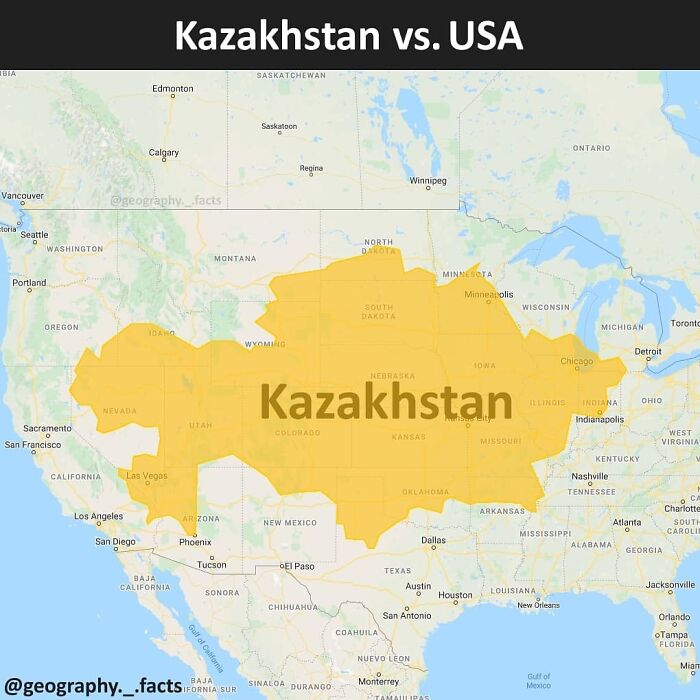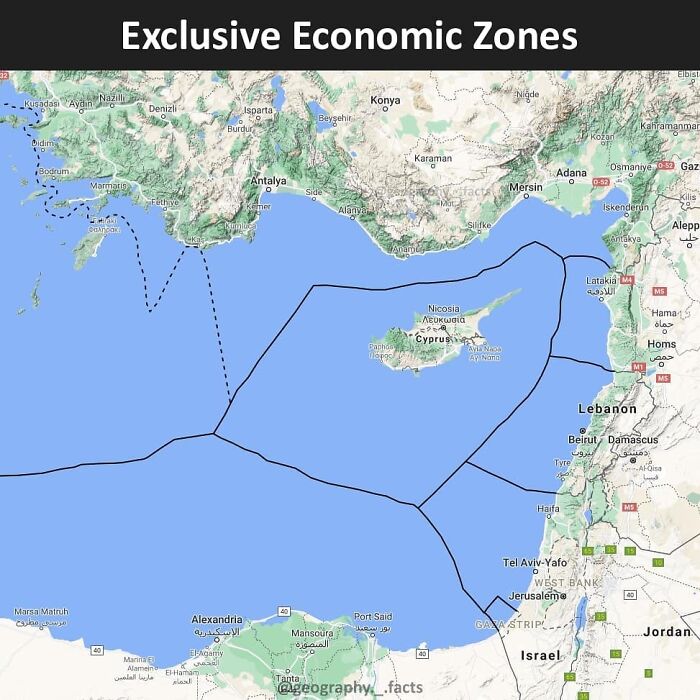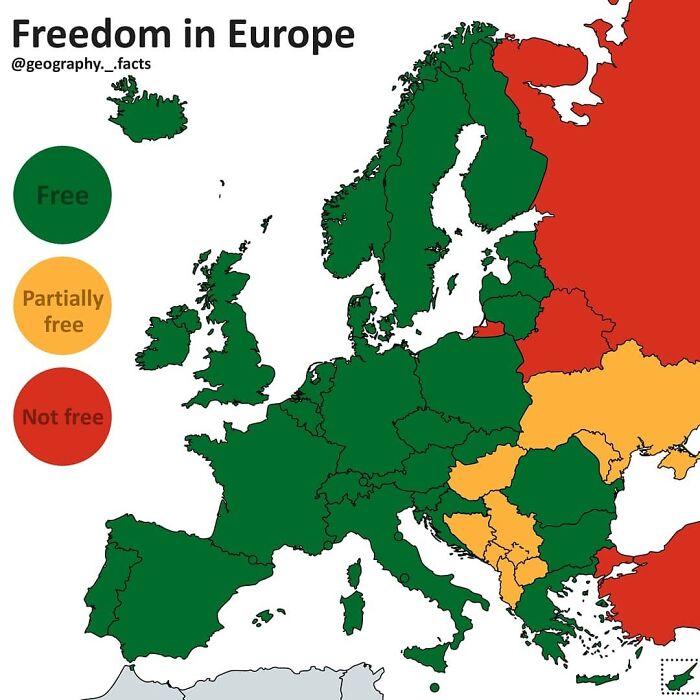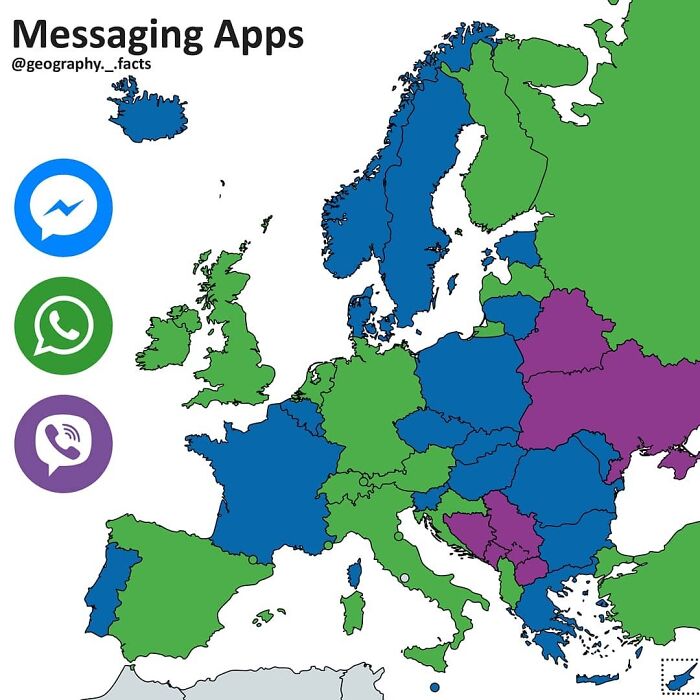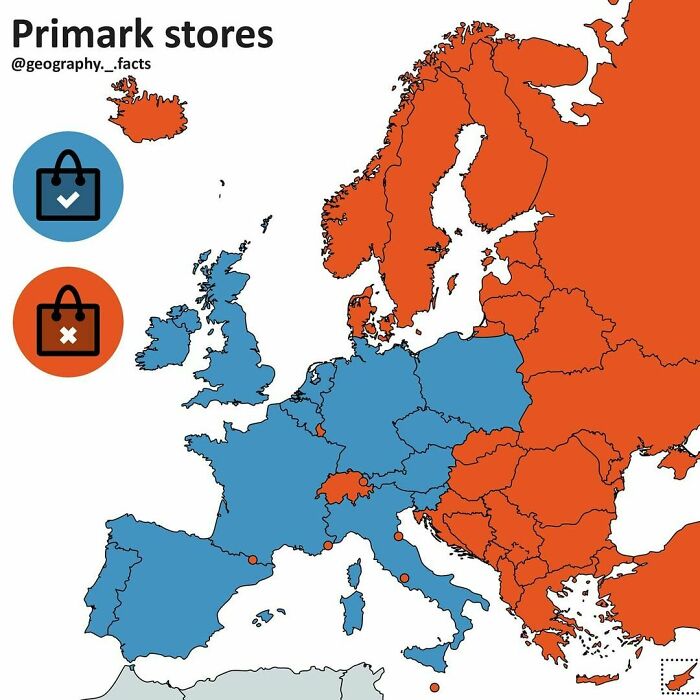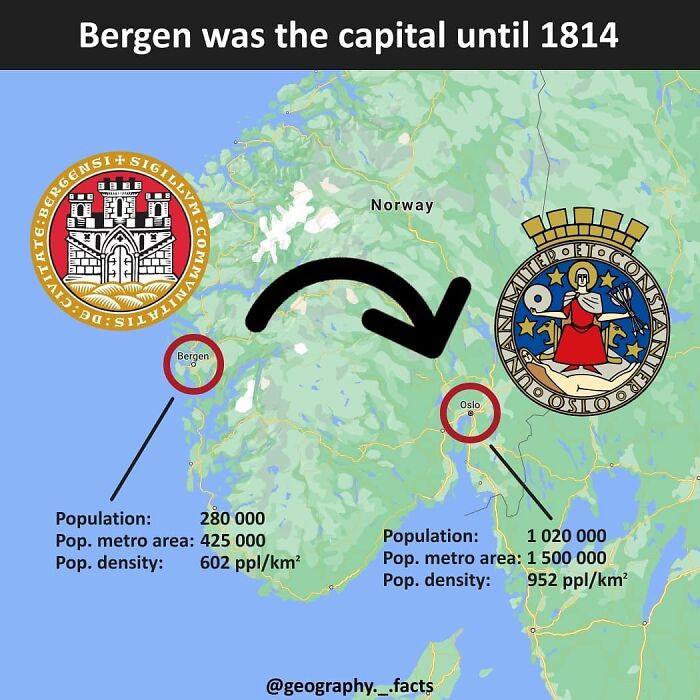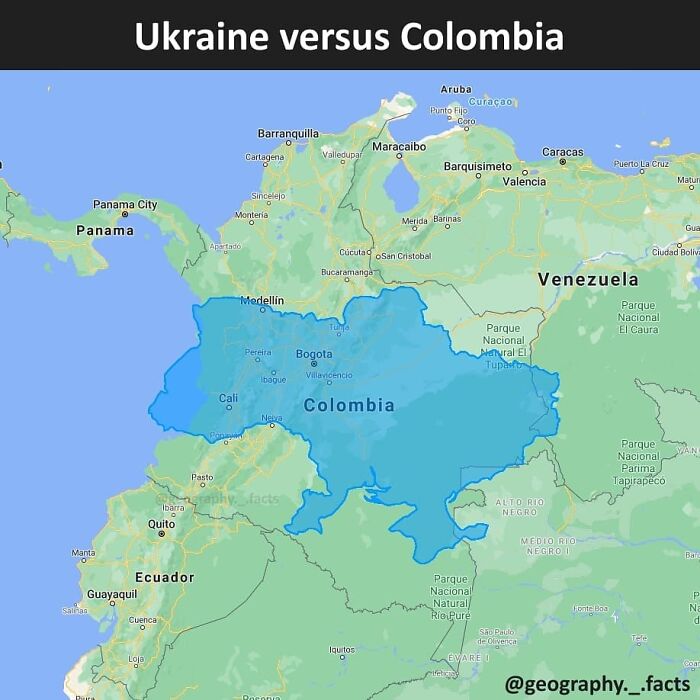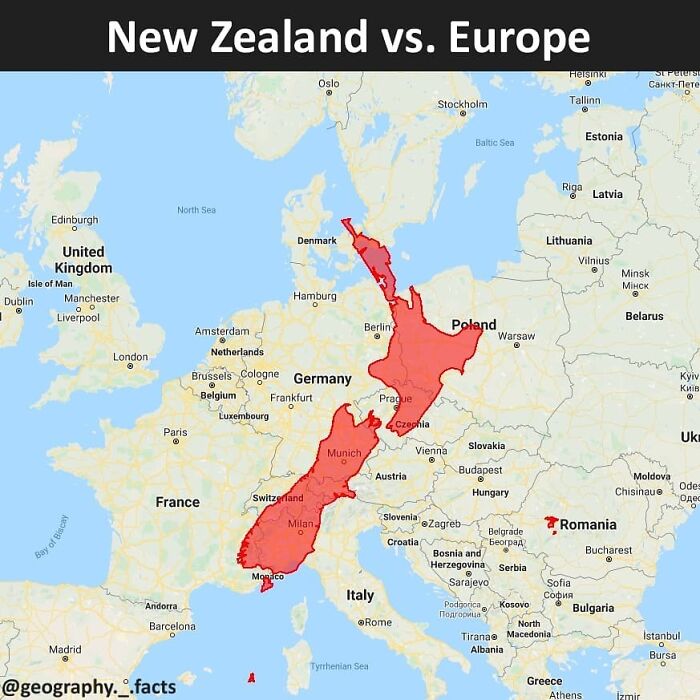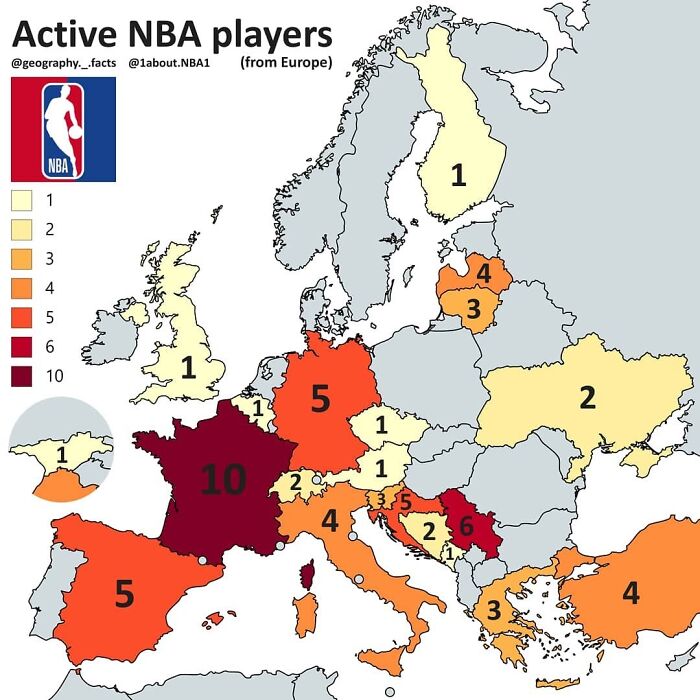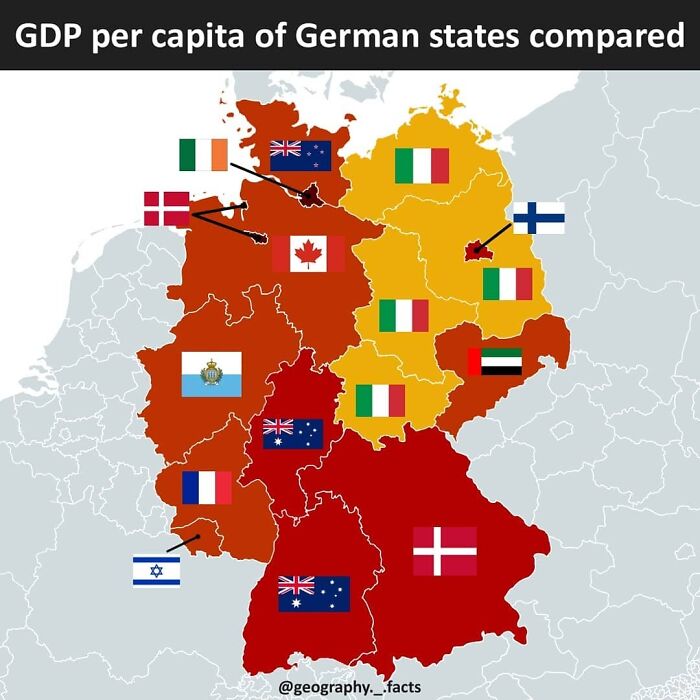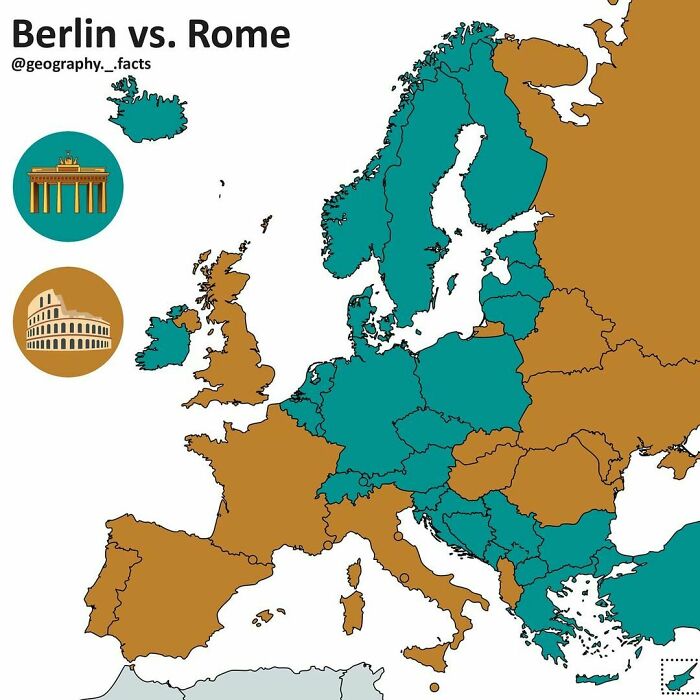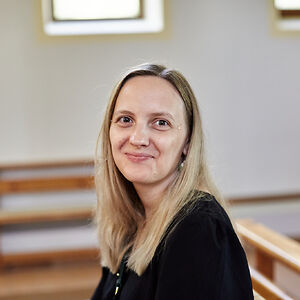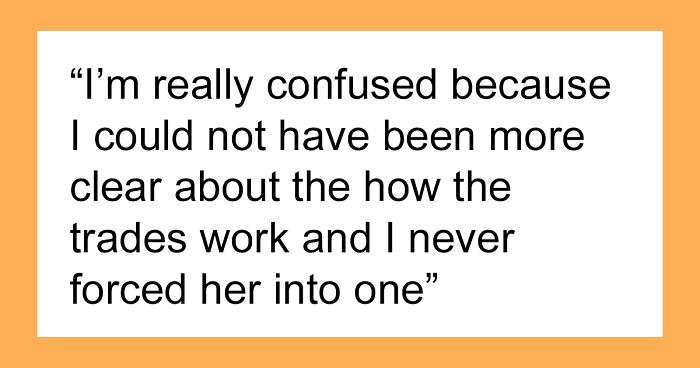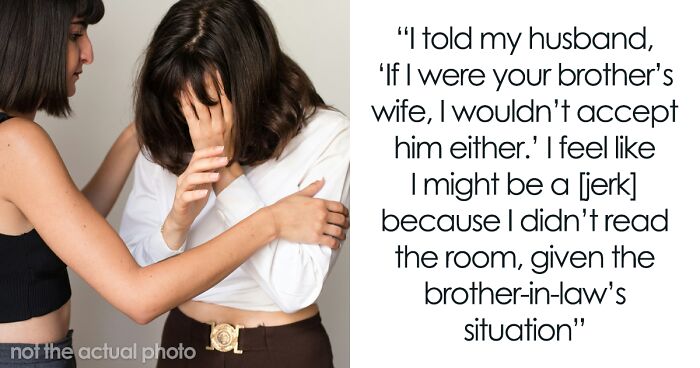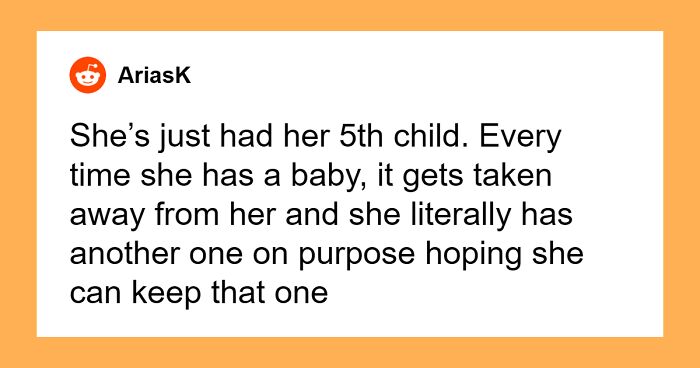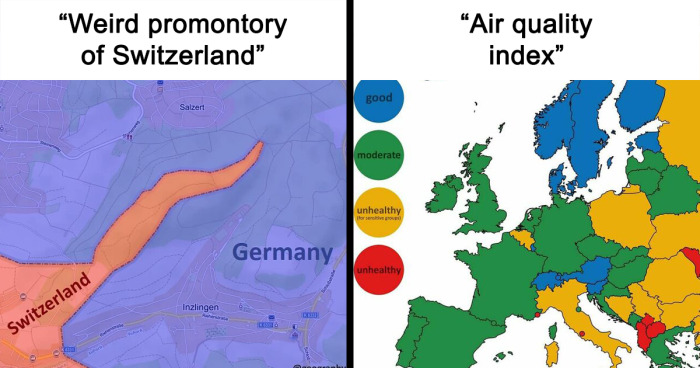
30 Of The Weirdest And Most Interesting Geography Facts You Probably Didn’t Know
InterviewGeography is an ever-changing and fascinating subject, encompassing a range of physical, social, and environmental sciences. By comparing collected geographic data we can find insights into the diversity of cultures, as well as learn how big or small some countries used to be.
However, due to the field's complexity, going in-depth and analyzing different facts is time-consuming. But luckily for us, there are many geography fans who just love finding new and interesting information and sharing it with the lazier population. One such example is the Instagram page geography._.facts, which offers various comparative and eye-opening maps.
So, Pandas, whether you are a geography aficionado or simply curious, we invite you to explore our list because we are sure you will find something intriguing that you are yet to learn.
Also below, you will find an interview with the hosts of 80 Days: an exploration podcast, who kindly shared about their geography-inspired content.
More info: 80dayspodcast.com | Patreon | Instagram | Facebook
This post may include affiliate links.
People in Mississippi voted in the referendum for a flag change. This is going to be a new flag of Mississippi state
What about the people in Mississippi who don't believe in God? They are not represented by their state flag.
I figure it was a compromise with the right to ditch the traitor portion of the flag.
Load More Replies...Their state motto is "By Manliness and Weapons". I have not laughed this hard in a while. Best motto is New Hampshire "Live Free or Die". and yes, prisoners make the license plates. The Vermont state motto is "Freedom and Unity. Come for the weed and stay because you can't get off the couch".
I dislike the 'in god we trust', but I love the rest; what a lovely flag
Well, it's got the stupid "In God We Trust" thing on it, but still a step in the right direction.
So has Utah. New flag is really, really well done. Has a beehive with mountains on it. Huge improvement.
yes, I quite like Utah's. The nod to indigenous people and color scheme are very well done
Load More Replies...I applaud Mississippi's decision to remove the Confederate flag from their state flag. Now we need to educate them on the US Constitution, especially the part about separation of church & state.
Glad to see they're no longer publicizing their racism, but which god are they referring to? So many to choose from without specificity. As for the atheists, well most of us are used to living among the delusional.
I just like the flower. The "in god we trust" part is a bit rude to people who do not believe in god.
It's a world wide religion. Americans have many gods or science just like the rest of the world. Religion is too much activity in the frontal lobe, that's what needs to be fixed
Load More Replies...They don't get any credit. They added the Confederate portion 30 years after the war, and held on to it for 125 years.
And it only took about 150 years after the Civil War to make the change.
"80 Days" podcast was created by “three history and geography nerds” that, in each episode, share their knowledge on little-known countries around the world. One of the hosts shared what inspired them to create this podcast. “We started the podcast in 2016, and the idea was essentially born out of a desire to find out more about obscure places that we've all heard of - Gibraltar, Tasmania, Easter Island, etc. - but that not too much of us know in depth. For example, we wanted to find out why there's a country that's entirely enclosed by South Africa, or why Newfoundlanders sound Irish. It turns out that there was no podcast filling that niche at the time, so we started our own!”
On their website, you can find 5 seasons with 10 episodes each, where you can learn more in-depth about countries like Québec, Djibouti, Seychelles, and more. We asked them to share how they decide on destinations they explore in the show. “We typically look for places that people usually would have heard of, but may not know much about. Sometimes the places we choose are quite obscure, but we often find that those ones have the most interesting stories and quirks associated with them,” shared one of the hosts.
how the f did this conversation about Brazil and France turn into the USA
Yes, we don't have to worry about any high tech threat from North Korea. They're the ones at risk.
When it comes to researching and presenting information about each location, the hosts involve a variety of sources. “Each of us (the three co-hosts) researches independently, and we divide up the place we're talking about into different time periods. That way, often, when we are recording our episodes, there will be surprise stories or facts that the others haven't heard about because it wasn't covered in their own section. In terms of resources, we rely a lot on academic reports, history books, as well as, documentaries, and other media sources such as podcasts. We also try to interview people who are from the areas we speak about, or who are experts in that field of geography/history.”
My wife (brown eyes) and I (blue eyes) agreed on everything regarding our kid like approach to religion, education, raising methods etc. but we didn't agree on our wish about the eye colour. I wanted my kid to have blue eyes, wife wanted her to have brown eyes. So she has one brown and one blue eye. The universe is twisted sometimes :D
people forget historic poland was even larger than this before the 3 wars of sequestration in the 1700s. People forget Ruthenia region around Lviv/Lvov had many ethnic poles, and historically was poland. The soviets kicked out a lot of the poles when they assigned it to Ukraine post WW2, but today Poland an Ukraine are good friends, and Poland no longer lays claim to those areas. But people always wonder why Poland feels so close to Ukraine and helps them so much, it is because so many people have family on both sides of the border in the Ruthenia region
TOP 5 Highest female to male ratio:
Djibouti - 83:100, Hong Kong, Latvia, Lithuania, Russia - 86:100
-
TOP 5 Lowest female to male ratio:
Qatar - 339:100, UAE - 256:100, Bahrain - 153:100, Kuwait - 138:100, Saudi Arabia - 130:100
Exploring the physical and cultural geography of each destination is a key aspect of 80 Days. The host shared how they balance these two elements.
“The easiest rule of thumb for podcasting is generally to talk about what's interesting. Often the physical aspects of a place will inform its history, and so on. We try very hard to tell a coherent story when we're talking about a place, but we'll also drop whatever isn't particularly interesting in order to keep the conversation flowing and keep listeners engaged.”
I am happy to correct this map: same-sex marriage is now allowed in Switzerland, too. Has been since July ‘22. Late as always but better than never.
The age at which a person's, typically a girl's, consent to sexual intercourse is valid in law
Is this taking into account the Horny Teenager laws that basically exist to stop high school couples getting put on various Registries, or does Europe just have a disparity between the age of consent and the age of majority across the board? I'm taking into consideration that our brackets (AUS) are 16-18 and 18+ so even assuming Horny Teenager laws are present on the map these numbers seem almost absurdly low to me.
As the hosts Joe, Luke, and Mark have delved into a wide variety of locations and cultures around the world, they have gained valuable insights into the remarkable diversity and interconnectedness of our planet.
“Overall I would say the most valuable thing that we've learned is that there are interesting facts, stories, and people everywhere. Some of the smallest and most obscure places we've spoken about, such as Pitcairn Island or Nauru, have been absolutely fascinating to discover. We've also found it really interesting to see the common threads between places we discuss, such as the destructive nature of colonialism or the similar cultural issues that crop up as new societies develop. It's also crazy how often people hundreds of years ago manage to crop up in several different places. We tend to think of intercontinental travel as a relatively new thing, but for a certain class of people, traveling significant distances and to these obscure places wasn't all that rare.”
And it's 100 degrees colder on that little peninsula tip than the rest of the island
So... if no-one's claiming the south-west part... maybe I should? Dibs!!
When asked about the value of exploring the world through a geographical lens and how their podcast contributes to a greater appreciation and understanding of geography, one of the hosts of 80 Days podcast explained the significance of discovering the stories of small places and the extraordinary characters that come to light along the way. “I think that the value of exploring small places, as I mentioned above, is that there is so much to discover everywhere. The reason we started the show was to discover why these small places came to be what they are, but very often the stories that we discover along the way, the heroes and villains that crop up, are just as extraordinary.”
This needs some explanation. How is the unrepresentative British First Past the Post system and unelected Upper House and unelected Monarchy as head of state more democratic than say Italy?
And lastly, the host added: “If you'd like to learn more about burning Christmas Goats, the world's largest exporter of false teeth, the ancient burial ground underneath Paris, a war criminal known as 'General Butt Naked', how Che Guevara was almost assassinated using a poisoned milkshake, or many other strange and obscure facts, please check out the show.”
Its a great system. You get money back from each bottle and some people just go around collecting bottles around the streets
I'd question that here in Germany- We don't really have censorship, but the framing towards the narative the government wants to tell is very obvious.
Dagen H (H day), today usually called "Högertrafikomläggningen" ("The right-hand traffic diversion"), was the day on 3 September 1967, in which the traffic in Sweden switched from driving on the left-hand side of the road to the right. The "H" stands for "Högertrafik", the Swedish word for "right traffic". It was by far the largest logistical event in Sweden's history.
-
There were various arguments for the change:
All of Sweden's neighbours drive on the right, including Norway and Finland, with which Sweden has land borders, and five million vehicles cross those borders annually.
Approximately 90 percent of Swedes drove left-hand drive vehicles, and this led to many head-on collisions when passing on narrow two-lane highways. City buses were among the very few vehicles that conformed to the normal opposite-steering wheel rule, being right-hand drive (RHD).
However, the change was unpopular; in a 1955 referendum, 83 percent voted to keep driving on the left. Nevertheless, the Swedish Parliament approved Prime Minister Tage Erlander's proposal on 10 May 1963 of right hand traffic beginning in 1967, as the number of cars on the road tripled from 500,000 to 1.5 million and was expected to reach 2.8 million by 1975. The Statens Högertrafikkommission (HTK) ("the state right-hand traffic commission") was established to oversee the change. It also began implementing a four-year education programme on the advice of psychologists.
As Dagen H neared, every intersection was equipped with an extra set of poles and traffic signals wrapped in black plastic. Workers roamed the streets early in the morning on Dagen H to remove the plastic. A parallel set of lines was painted on the roads with white paint, then covered with black tape. Before Dagen H, Swedish roads had used yellow lines.[citation needed] Approximately 350,000 signs had to be removed or replaced, 20,000 in Stockholm alone
If you're wondering why the freeway on ramps in Sweden are very short... They used to be the exits
Someone heard about that place in Wales and said "hold my beer".
Some of these are quite interesting, but the lack of proper explanations makes some of them useless.
To compare any country’s size, go to www.thetruesize.com e.g. https://www.thetruesize.com/#?borders=1~!MTY2ODY1OTI.OTAxMTAzNg*MjYzMzYzNTg(NzM1MTk4Mw~!AU*MTQ0NjMxNTU.MTMxMzkxMTQ)Mw
Some of these are quite interesting, but the lack of proper explanations makes some of them useless.
To compare any country’s size, go to www.thetruesize.com e.g. https://www.thetruesize.com/#?borders=1~!MTY2ODY1OTI.OTAxMTAzNg*MjYzMzYzNTg(NzM1MTk4Mw~!AU*MTQ0NjMxNTU.MTMxMzkxMTQ)Mw

 Dark Mode
Dark Mode 

 No fees, cancel anytime
No fees, cancel anytime 


